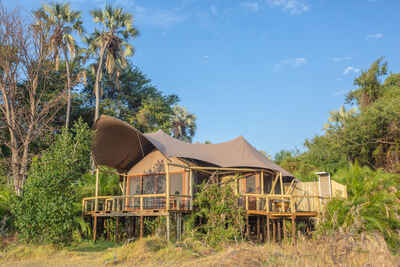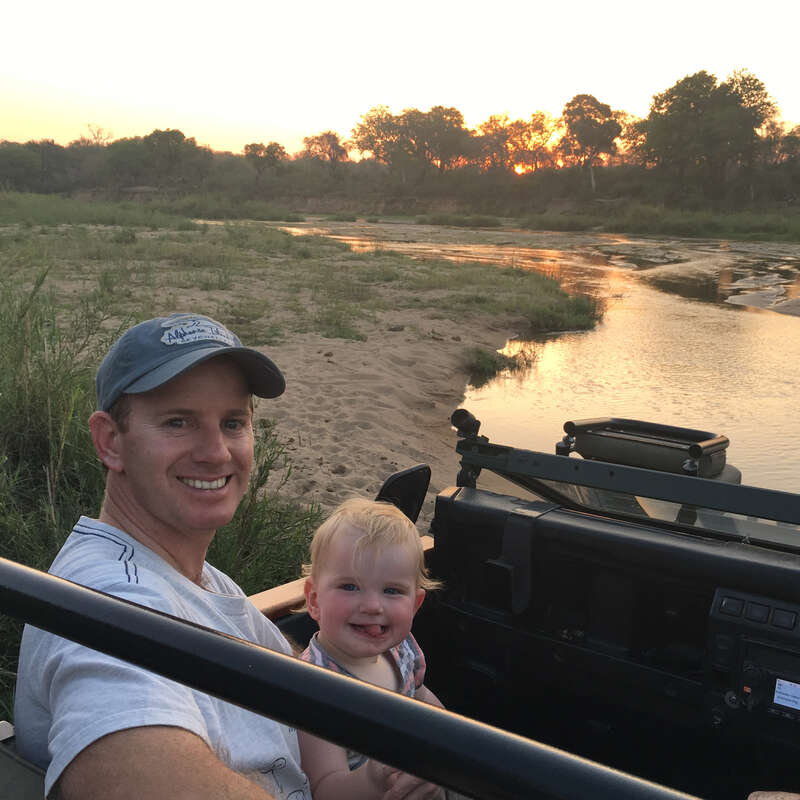About Jacana Camp
Jacana Camp is a fairly small camp built on a little island amidst the large open floodplains of the Jao Flats.
The Okavango's levels fluctuate throughout the year but when the water levels are high during the peak of the floods, Jacana is usually completely surrounded by water, giving it a true island feeling. This also means that water-based activities can generally be offered year-round. When water levels permit, occasional dry-land 4WD trips to Hunda Island, for game viewing, are also an option.
This authentic Delta camp is a firm favourite of our team. It stands out for its stunning location, excellent birdlife and informal, tropical air. Jacana Camp makes a particularly good place to end a safari, or when used in the middle of a trip, as a welcome break from the 'serious' business of big-game watching. Come for a classic water-based Delta experience, and we hope you enjoy this camp as much as we do.
Our view
This authentic Delta camp is a firm favourite of our team. It stands out for its stunning location, excellent birdlife and informal, tropical air. Jacana Camp makes a particularly good place to end a safari, or when used in the middle of a trip, as a welcome break from the 'serious' business of big-game watching. Come for a classic water-based Delta experience, and we hope you enjoy this camp as much as we do.
Accommodation
5 tented chalets
Children
Best for 12+
Open
The camp usually closes for a month at t
Activities

4WD Safari

Birdwatching

Boat trip

Fishing

Guided walking safari

Helicopter

Mokoro

Night drive

Private activities
Traveller reviews of Jacana Camp
27 real, un-edited reviews from Expert Africa's travellers.
Arrived 18 Oct 2021, 3 nights
"Jacana Camp review"
Overall rating: Excellent
Arrived 22 Jan 2020, 2 nights
"Jacana Camp review"
Overall rating: Excellent
Arrived 13 Aug 2018, 3 nights
"Jacana was a great experience"
Overall rating: Excellent
Arrived 12 Nov 2017, 2 nights
"Jacana Camp review"
Overall rating: Excellent
Arrived 27 Jul 2017, 2 nights
"Pure Paradise"
Overall rating: Excellent
Arrived 29 Jul 2017, 3 nights
"Always my favourite"
Overall rating: Excellent
Arrived 5 Sep 2016, 3 nights
"Jacana Camp is in a beautiful location"
Overall rating: Excellent
Arrived 30 Apr 2016, 3 nights
"Jacana Camp review"
Overall rating: Excellent
Arrived 30 May 2015, 2 nights
"Jacana Camp review"
Overall rating: Good
Arrived 4 Oct 2014, 2 nights
"Jacana Camp review"
Overall rating: Excellent
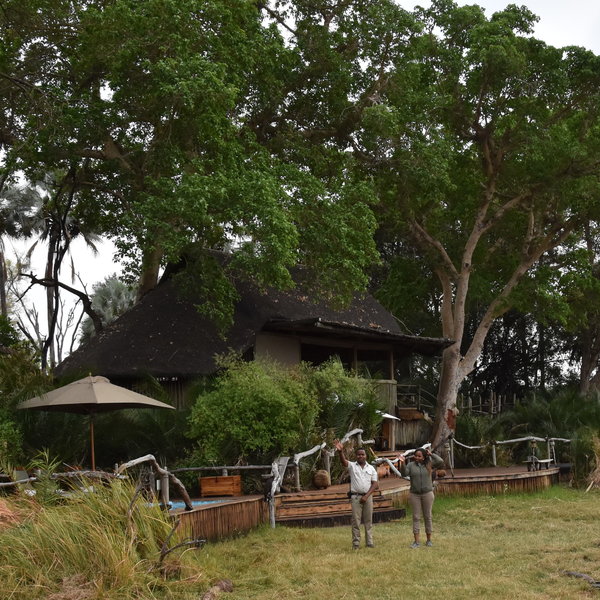
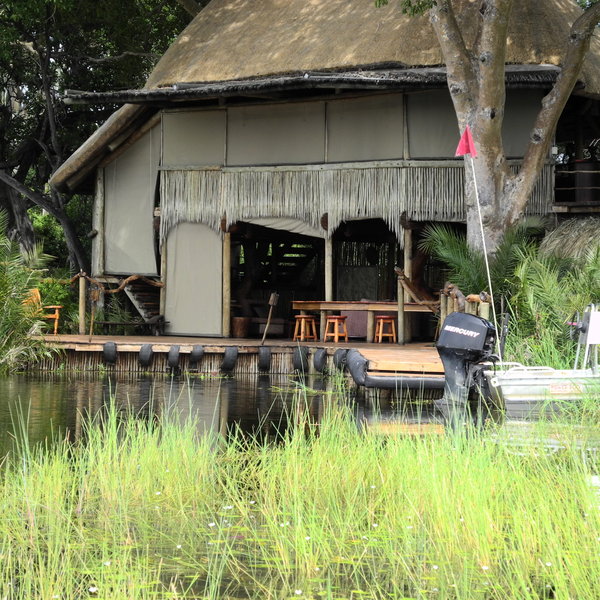
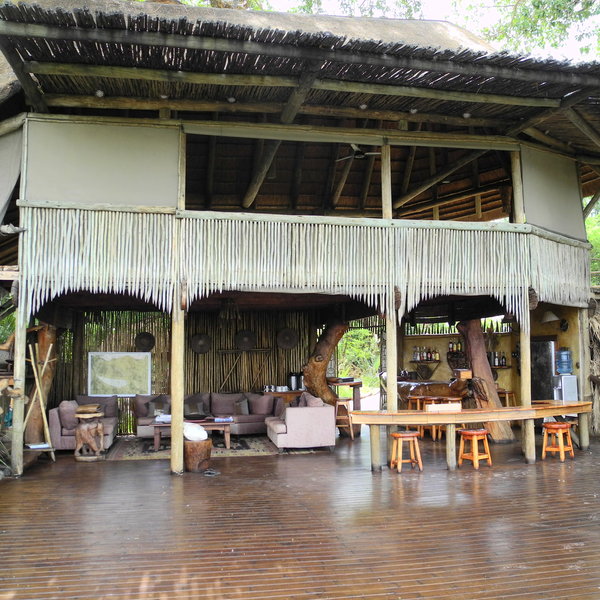
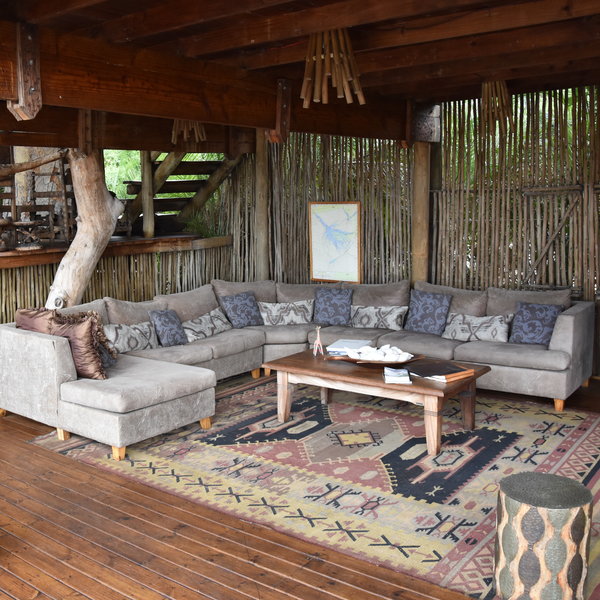
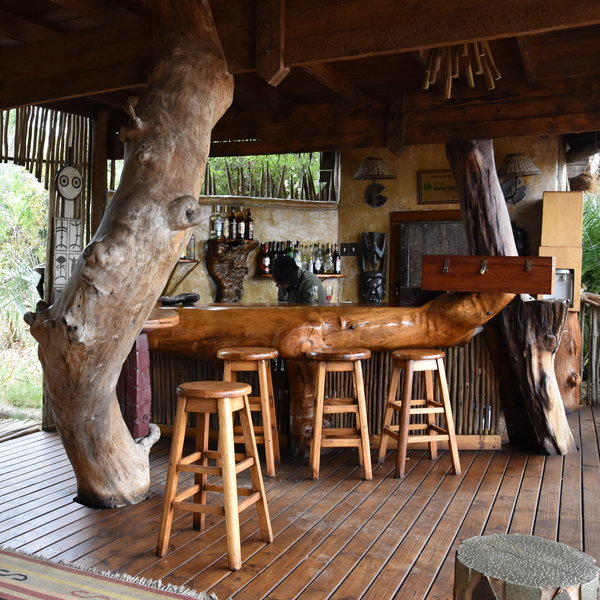
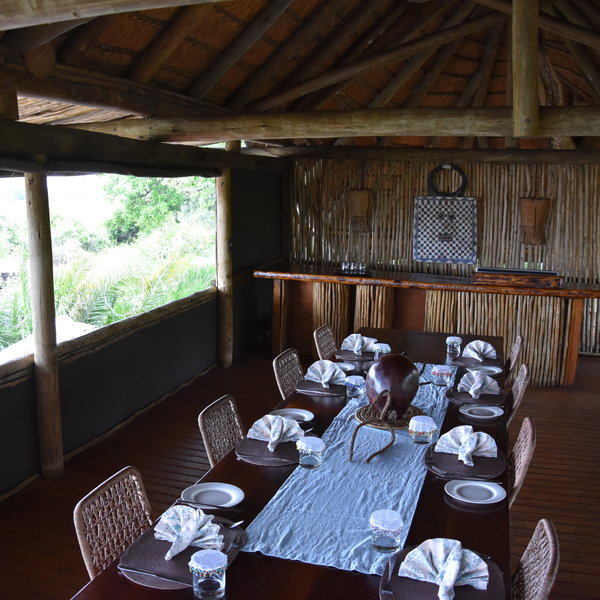
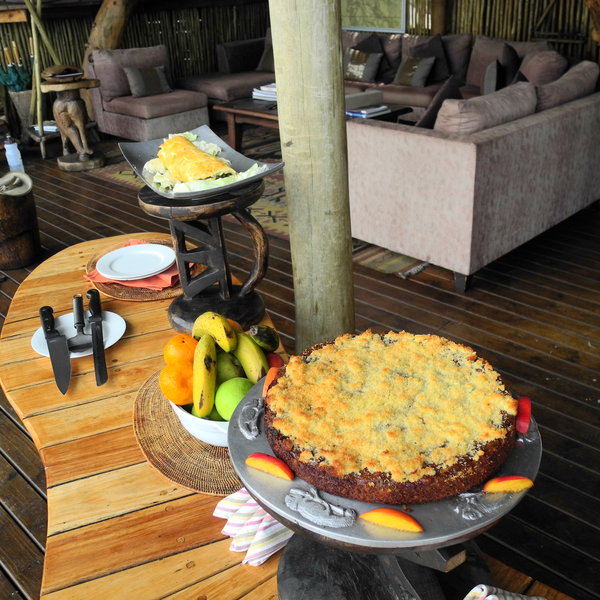
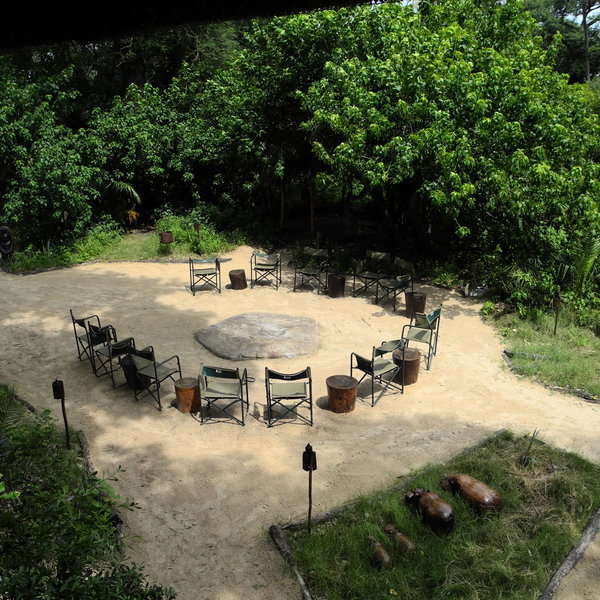
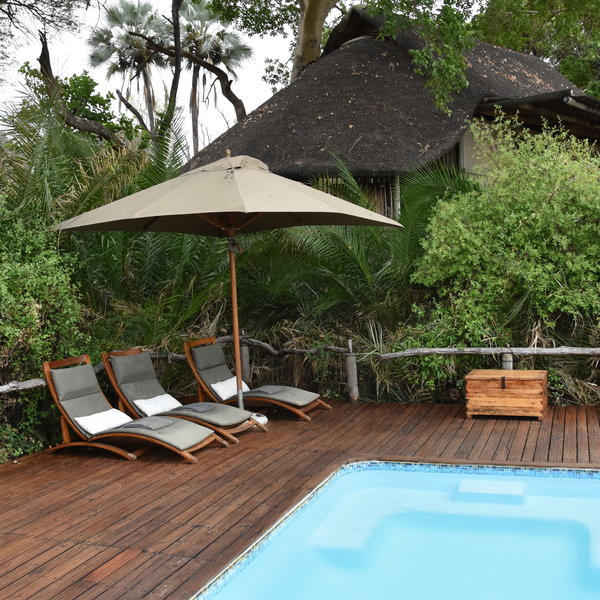
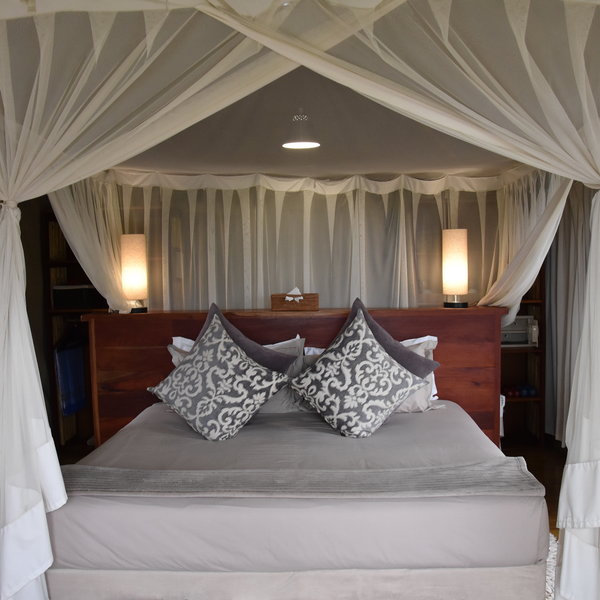
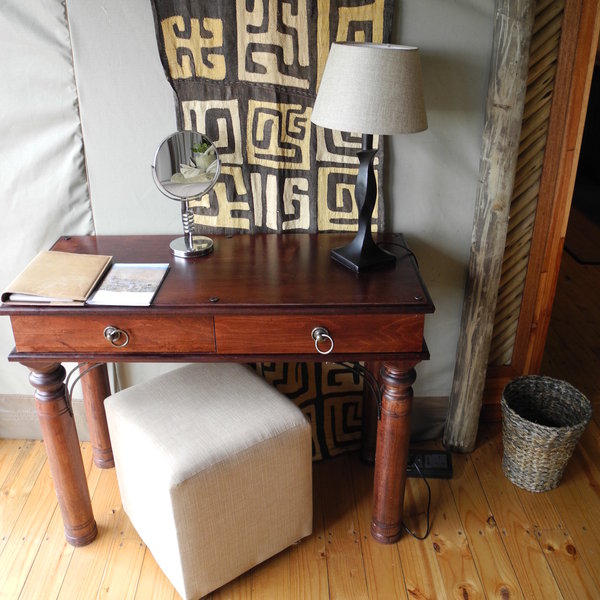
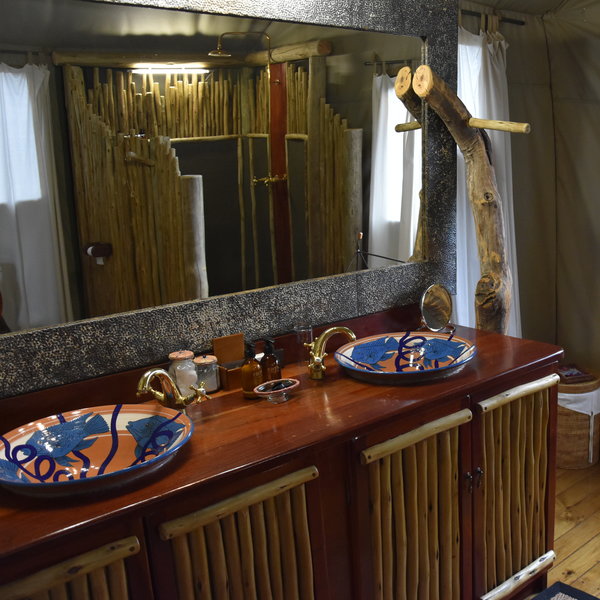
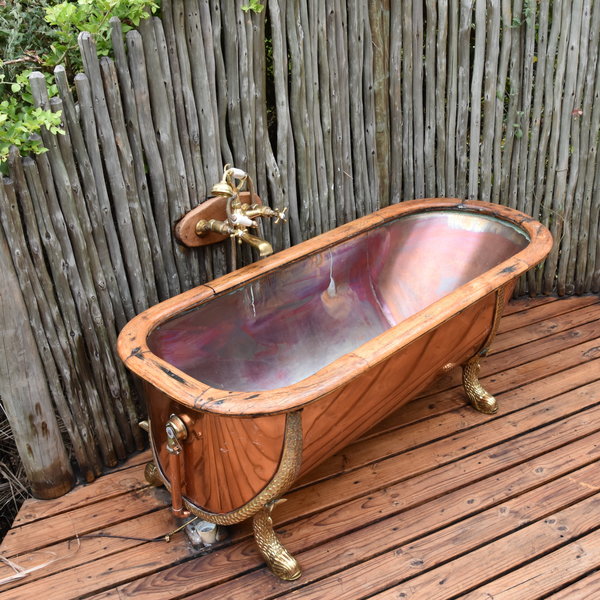
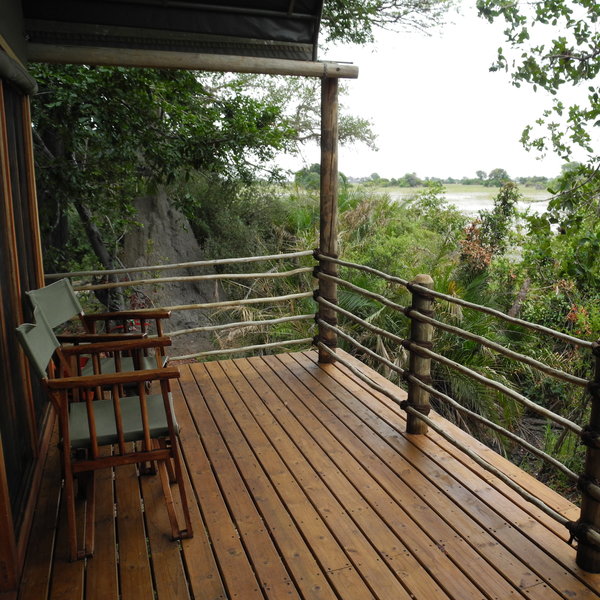
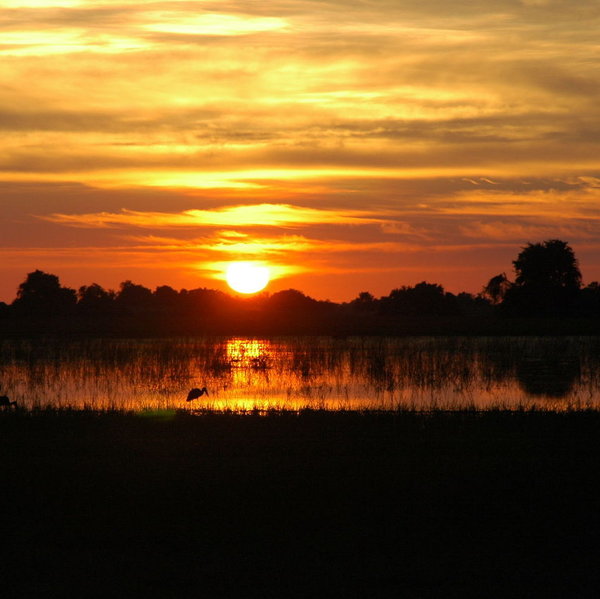
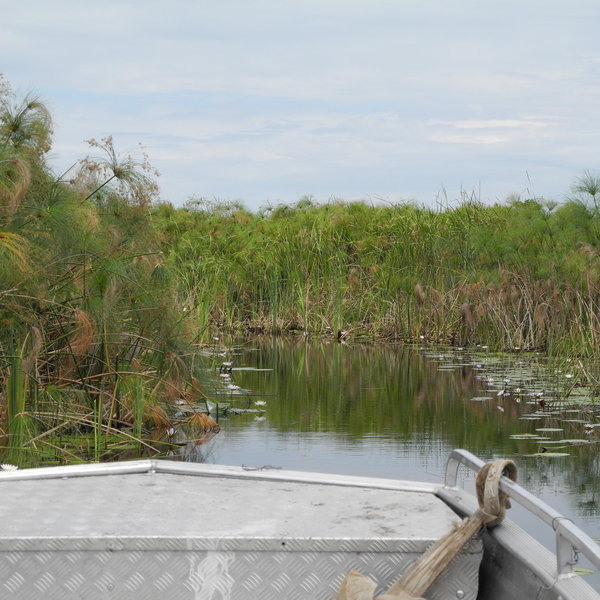
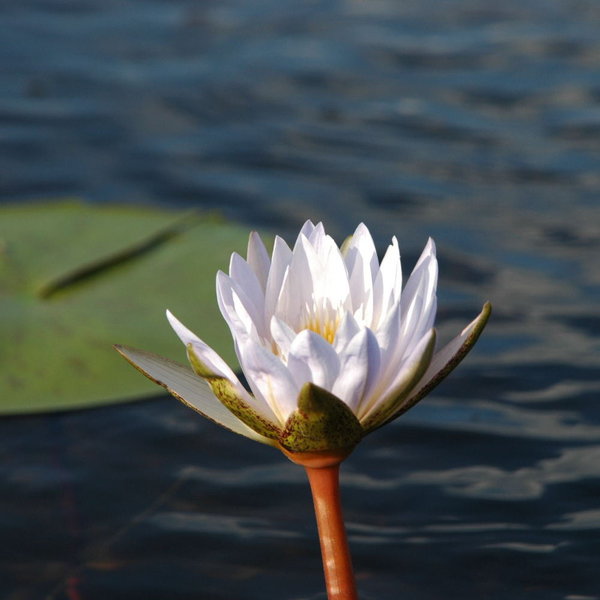
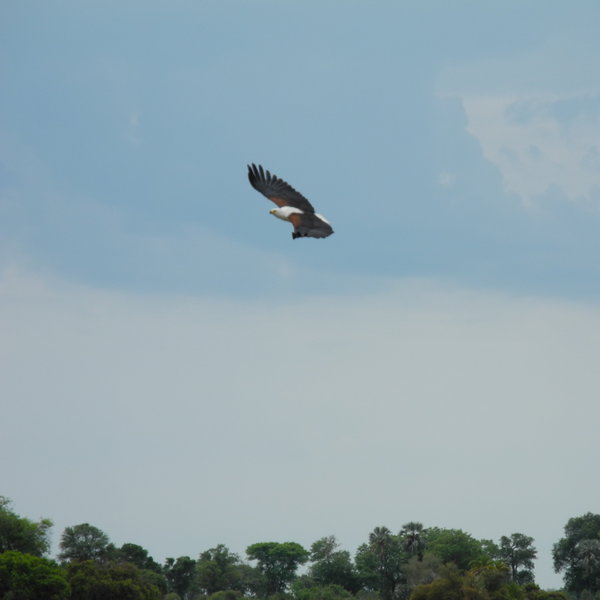
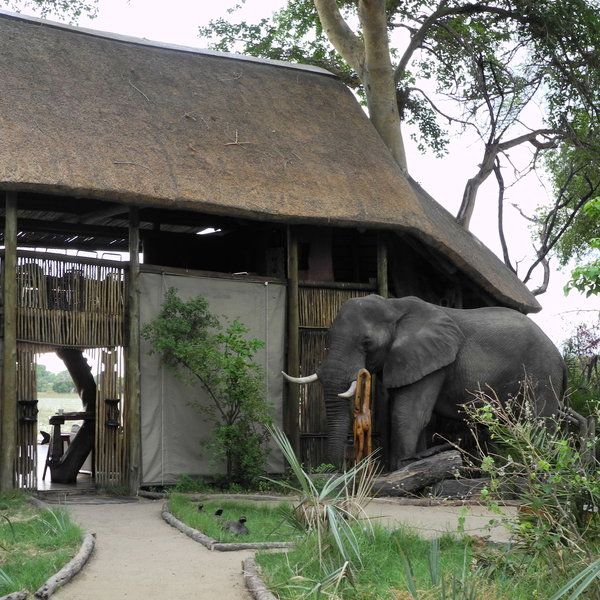
Expert Africa's gallery
When we travel we take lots of photos ourselves to give you a real and un-edited view of the safaris. See our 26 pictures and 1 videos of Jacana Camp to get the candid view.
View galleryJacana Camp: Our full report
Jacana Camp is a fairly small camp built on a little island amidst the large open floodplains of the Jao Flats.
The Okavango's levels fluctuate throughout the year but when the water levels are high during the peak of the floods, Jacana is usually completely surrounded by water, giving it a true island feeling. This also means that water-based activities can generally be offered year-round. When water levels permit, occasional dry-land 4WD trips to Hunda Island, for game viewing, are also an option.
Jacana Camp lies within the Jao Reserve, and its small palm-fringed island is typical of the Jao Flats, which is one of the Okavango Delta's largest areas of floodplains. The scenery is very beautiful, and corresponds to what many people expect of the Okavango Delta before they see it for the first time: it's very lush and tropical. We also feel that the camp itself has a particularly relaxed, laid-back air with friendly and efficient staff – perhaps aided by the watery surroundings and the naturally slow pace of mokoro activities.
Jacana Camp's main area is a double-storey building which faces east. So while eating muffins and toast before our morning activity, we had a prime spot to watch the sunrise over the water (and admire our elephant visitor who happily munched his own breakfast at the end of the deck).
Downstairs on the lower deck is the main lounge area with some comfortable sofas, a tea-and-coffee station, and polished wooden bar. Tucked away on a small landing about halfway up the stairs you’ll find a small library and sofa. And the upper deck houses the open-sided dining area, which offers even better views across the floodplains. A wooden walkway leads from the eating area to the fun 'loo with a view', which must be experienced during your stay!
Nestled off to the side of the main building is a small plunge pool with sunloungers and umbrellas. Behind the bar is an area with a central firepit, which is lit most evenings and is a popular spot for pre- and post- dinner drinks and animated discussions. There is also a small curio shop.
Accessed along sandy paths, the five fairly spacious tented chalets at Jacana Camp are set up on wooden decks, each with a small balcony overlooking the scenic floodplains. Sliding doors open into the bedroom area, where a large bed beneath a walk-in mosquito net and cooling ceiling fan makes the most of the view. Bed linen and cushions are in muted tones. A couple of comfortable chairs invite relaxation, and a writing desk plays host to camp information and a few magazines. The practical stuff is tucked away at the back: shelves and hanging space, a tea- and coffee-making station, an electronic safe, and an assortment of international adaptors.
Another sliding door at the back leads to the open-plan, en-suite bathroom. Ceramic double basins are set into a wooden surface beneath an unusual metal-framed mirror. Separated to some extent by head-height wooden poles are the indoor shower and flushing loo. But for stunning views, head for the outside shower, leading off the veranda.
While all Jacana’s chalets are almost identical in style, two are geared to particular guests. Those with children will welcome the family chalet, which has two separate bedrooms joined by a single bathroom. And in the honeymoon suite, set on the other side of the main area to the rest of the chalets, greater privacy allows for an outside bath in an opulent copper roll-top tub.
We're always impressed by the rich birdlife that can be viewed from an armchair on our balcony or the lounge at Jacana, and of course during activities. Species we've spotted include wattled crane, slaty egret, saddle-billed stork and rufus-bellied heron. Birding enthusiasts should keep an eye out for Pel's fishing owl, which are known to nest on a nearby island. On our last trip in September 2017 we only had time to pop in to look around the camp, but on a previous visit we were lucky enough to spot two of these riverine specialists in the same tree.
On activities at Jacana, we've found the guiding to be of a generally high standard. On one visit, water levels were high and we chose to go out in the motorboat for the morning and try our hand at fishing (much to the delight of our guide!). It was incredibly relaxing and we spent a wonderful few hours birding and learning to fish. Jacana also offers mokoro trips.
Daylight game drives are usually offered in the Jao area when the waters have receded, generally from around September until about April. This said, the transfer is long so Jacana should be considered a primarily a water-based camp. Despite the occasional visit from hippo and elephant and frequent red lechwe sightings don't come here expecting abundant big game. Rather, enjoy the opportunity to immerse yourself in a true water-based Delta experience.
Note that even when game drives are offered, night drives are not generally an option because it's usually necessary to boat into camp, and they won't run the boats at night for safety reasons.
Activities
4WD Safari
Birdwatching
Boat trip
Fishing
Guided walking safari
Helicopter
Mokoro
Night drive
Private activities
Families & children
- Attitude towards children
- Children over the age of 12 years are welcome at Jacana.
The camp may accept children between the ages of 6 and 12 years old, but private activities must be booked and these will be at an extra cost.
Children younger than six may be accepted by special arrangement, and then only if the entire camp is reserved for exclusive use. - Property’s age restrictions
- Minimum age normally six years. Note that there is a 13+ age limit on mokoro activities.
- Special activities & services
- There are no special activities or services for children.
- Equipment
- No special equipment is available, but there is a family chalet with two bedrooms linked by one shared bathroom.
- Generally recommended for children
- We think this camp would suit older children with a keen interest in the natural world, possibly even fishing (note that fishing is not allowed during the breeding season of January–February). Game drives can be hard going, when they are offered, so we strongly recommend booking private activities for greater flexibility.
- Notes
- Wildlife, including hippos and bull elephants, wanders through Jacana Camp on a surprisingly regular basis. The balconies are on stilts and would not be suitable for small children. The pool is unfenced and the camp is often surrounded completely by water. Children must be under the constant supervision of their parents.
Food & drink
- Usual board basis
- Full Board & Activities
- Food quality
- Meals at Jacana Camp are served buffet-style. In the past, the food has sometimes been disappointing, but we have really enjoyed it the last few times we have stayed here (though we didn’t have time for a meal on our most recent visit, in September 2017).
A light breakfast of cereal, fruit, toast, muffins, tea and coffee is served on the deck before departing on your early morning activity. .
On your return, brunch is a good selection of dishes. On one occasion we were offered chicken kebabs, mustard mashed potato, artichoke and asparagus salad, a green salad and freshly baked bread, with sausages and eggs cooked to order. There was also a fruit platter and a cheeseboard, just in case you could squeeze in more after the main offerings!
For afternoon tea on different visits, we’ve had savouries of tuna samosas, pizza slices and mini quiches, balanced by a moist orange cake or banoffee pie. Several iced drinks – coffee and lemonade, plus tea and coffee, usually accompany this.
On our last stay, we had a really tasty dinner of corn chowder soup, breaded chicken escalope with patty pan (a type of squash) and green beans served with a mushroom sauce and a green salad, rounded off by orange pancakes. - Dining style
- Group Meals
- Dining locations
- Indoor and Outdoor Dining
- Further dining info, including room service
- There is no room service.
- Drinks included
- Bottled water, soft drinks, local beers and spirits and a limited selection of (usually) South African red and white wines are included. Champagne and imported wines and spirits will cost extra and may need to be requested in advance.
Our travellers’ wildlife sightings from Jacana Camp
Since mid-2018, many of our travellers who stayed at Jacana Camp have kindly recorded their wildlife sightings and shared them with us. The results are below. Click an animal to see more, and here to see more on our methodology.

100% success

100% success

67% success

67% success

67% success

67% success

33% success

33% success

33% success

33% success

0% success

0% success

0% success

0% success

0% success

0% success

0% success

0% success
Getting there
- Location
- Okavango Delta Safari Reserves, Botswana
- Ideal length of stay
- Two nights are fine here, because of the focus on water-based activities. However, if Jacana is the only water-based camp you are visiting or you'd simply prefer to slow the pace of your safari a little, then you may wish to stay a night longer.
- Directions
- Access to camp is usually via a light-aircraft transfer to Jao airstrip. Transfers to Jacana Camp from there are usually by boat, but may be by road (or a combination of both) if the flood waters have receded sufficiently. For the past two years the latter has not been an option due to high water levels.
- Accessible by
- Fly-and-Transfer
Special interests
- Birdwatching safaris
- Jacana Camp would be a key part of a birding trip to Botswana, with species including Pel's fishing owl, wattled crane, saddle-billed stork, African darter, reed cormorant, slaty egret, and goliath and rufous-bellied herons.
- See ideas for Birdwatching safaris in Botswana
Sustainability
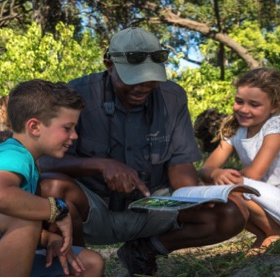
Educating children in the wilderness
In an area of the Okavango Delta highly affected by human-wildlife conflicts, the team at Jacana camp is committed to bridge the gap between locals and wildlife conservation through teaching future generations about the benefits of protecting natural heritage. Over the past decade, the camp has repeatedly hosted 3-day eco-camps for local children– as part of the ‘Children in the Wilderness Botswana’ initiative – which are aimed to provide them with adequate skills and knowledge concerning environment and wildlife protection, so that they can become the future leaders of the Okavango Reserve.
The camp has a similar programme for their little guests called ‘Bush Buddy Programme’ – a great opportunity for families traveling with children to engage in aspiring activities, learning about the local wildlife and the challenges encountered in protecting it.
Additionally, Jacana has partnered up with ‘Pack for a Purpose’ and encourages guests to save some space in their luggage for packing some donations which go directly to the primary school in Tubu village or other nearby communities. Among the necessities required, guests could bring school supplies, reference or reading material, toys, clothes or toiletries/first-aid kits.
See more great sustainability projects in Botswana
Communications
- Power supply notes
- Batteries provide power when the generator is off.
- Communications
- There is no cellphone reception, no direct phone or fax and no email. Communication is maintained with the head office in Maun via radio.
- TV & radio
- There is no TV or radio.
- Water supply
- Other
- Water supply notes
- The water is pumped from the Delta and treated by reverse osmosis, as such it is safe to washing and human consumption.
Health & safety
- Malarial protection recommended
- Yes
- Medical care
- The nearest doctor is in Maun. All management and guides are first-aid trained and there is a nurse on call (via radio) 24 hours a day. Medical evacuation is available in case of emergencies, but please note that it is only possible to fly out of camp during daylight hours as the bush airstrips do not have any lighting at night.
- Dangerous animals
- High Risk
- Security measures
- Guests are escorted to/from their chalets after dark as dangerous wildlife wanders through the camp. A thorough safety briefing is given on arrival. 'Fog horns' are provided in the chalets to attract attention in case of emergency.
- Fire safety
- There are fire extinguishers outside all the chalets and in the main area.
Useful info
- Disabled access
- Not Possible
- Laundry facilities
- A laundry service is included at Jacana. Laundry is collected in the morning and usually returned the same day, weather permitting. For cultural reasons, the staff do not wash underwear. Detergent is provided in each chalet for guests who wish to do a little hand washing.
- Money
- No exchange facilities are offered. There are safes in all the chalets.
- Accepted payment on location
- Mastercard and Visa credit cards are accepted; Diners and Amex are not. Cash payments may be made in the form of South African rand, GB sterling, US dollars, euros and Botswana pula.
Plan and book your trip with Expert Africa
All of our trips are tailor-made, so we'll always adapt them to suit you. Talk to an Expert and let us plan and arrange your perfect trip.

Talk to an Expert
Call or email us now! We’ll match you with the Specialist in our team who is best suited to help you. Then together we can start planning your trip.

Set up your itinerary
Based on our experience and your ideas, your specialist will create a detailed, costed itinerary. We’ll refine it together, until we have a trip that you’re perfectly happy with.

Prepare for your trip
The same Specialist will make the seamless arrangements for your trip, send you detailed travel documents, and be available to answer any questions before you depart.

Travel with peace of mind
After you set off, you’ll be cared for by our partners in Africa, most of whom have worked with Expert Africa for decades. And if you ever need us urgently, we’re available 24/7.

When you return
We love to learn about your trip, and so will always be grateful if you’ve the time to give feedback to your Specialist when you return.
Jacana Camp's location
Look closer at the environment and surroundings of Jacana Camp.
Excursions from Jacana Camp
Optional extra day-trips and excursions possible whilst you're staying at Jacana Camp. Talk to us: these are usually best arranged before you go.
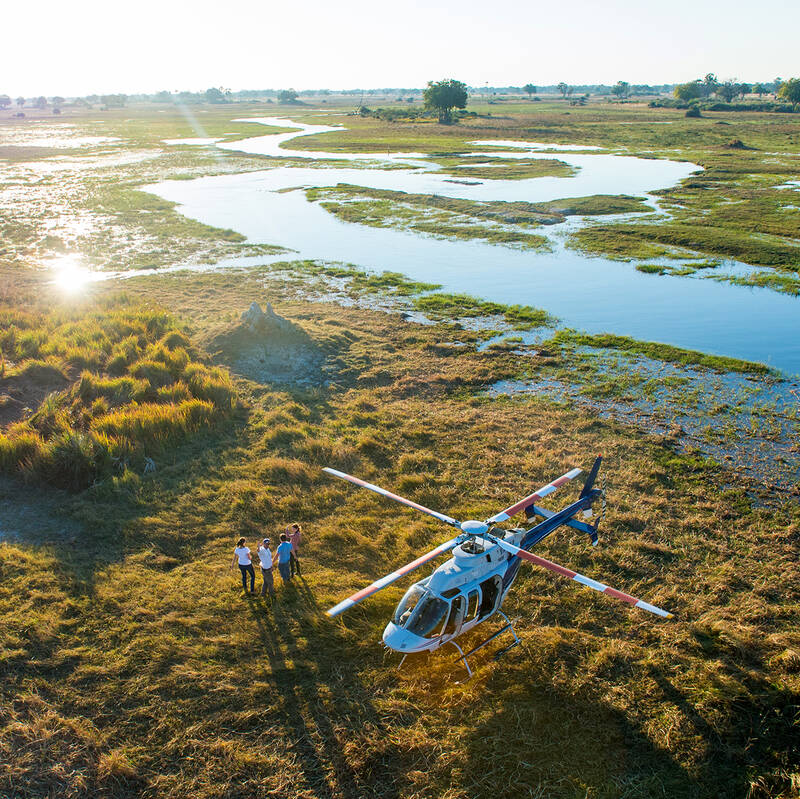
Helicopter Flight - Botswana
Various: from 30 minutes to half a day.
Low-flying, agile and offering superb views, helicopters are an ideal way to move around the Okavango Delta.You can use them instead of fixed-wing inter-lodge transfers or as an addition to other wildlife watching activities, and of course, helicopters can hover to allow that perfect pic, whereas fixed-wings can’t.
More about Helicopter FlightOther lodges in Okavango Delta Safari Reserves
Alternative places to stay in this same area.
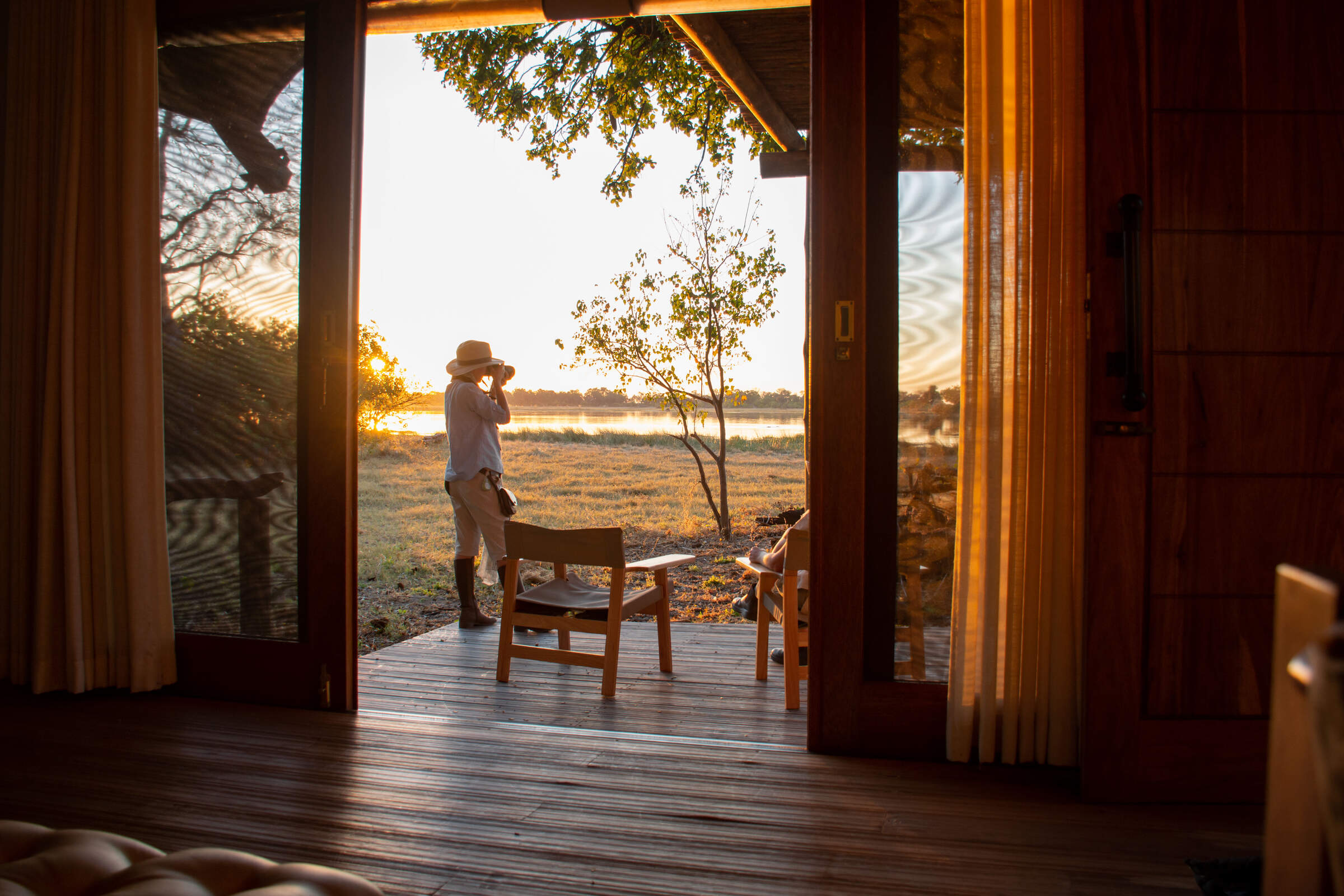
Kwara Camp
Kwara Camp's private reserve boasts land and water activities year-round, with excellent game-viewing opportunities and access to permanent channels of the north-east Okavango Delta.
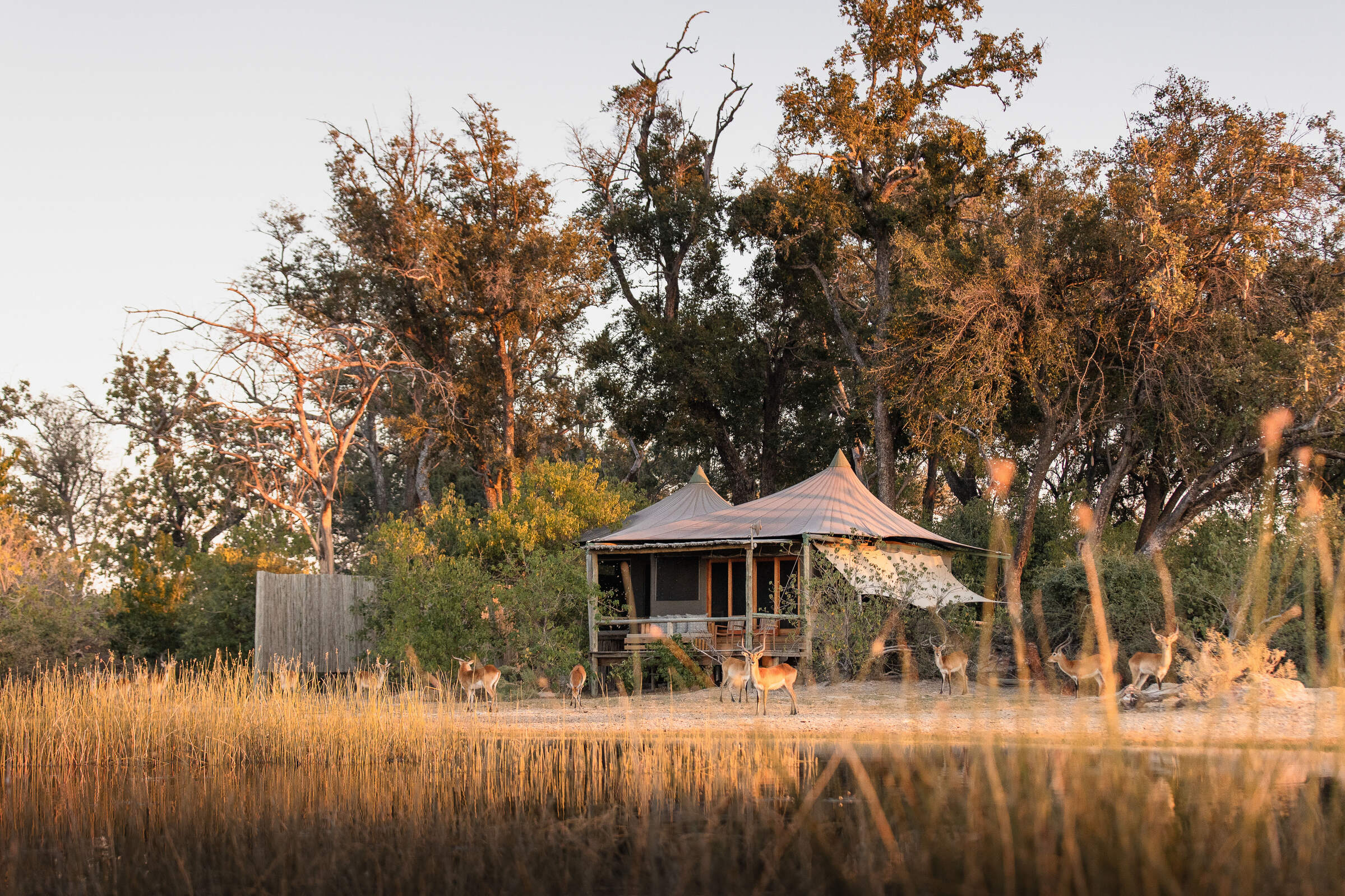
Little Vumbura
On a secluded island within a private reserve, Little Vumbura combines superb game viewing with a broad diversity of habitats in a truly picturesque setting.
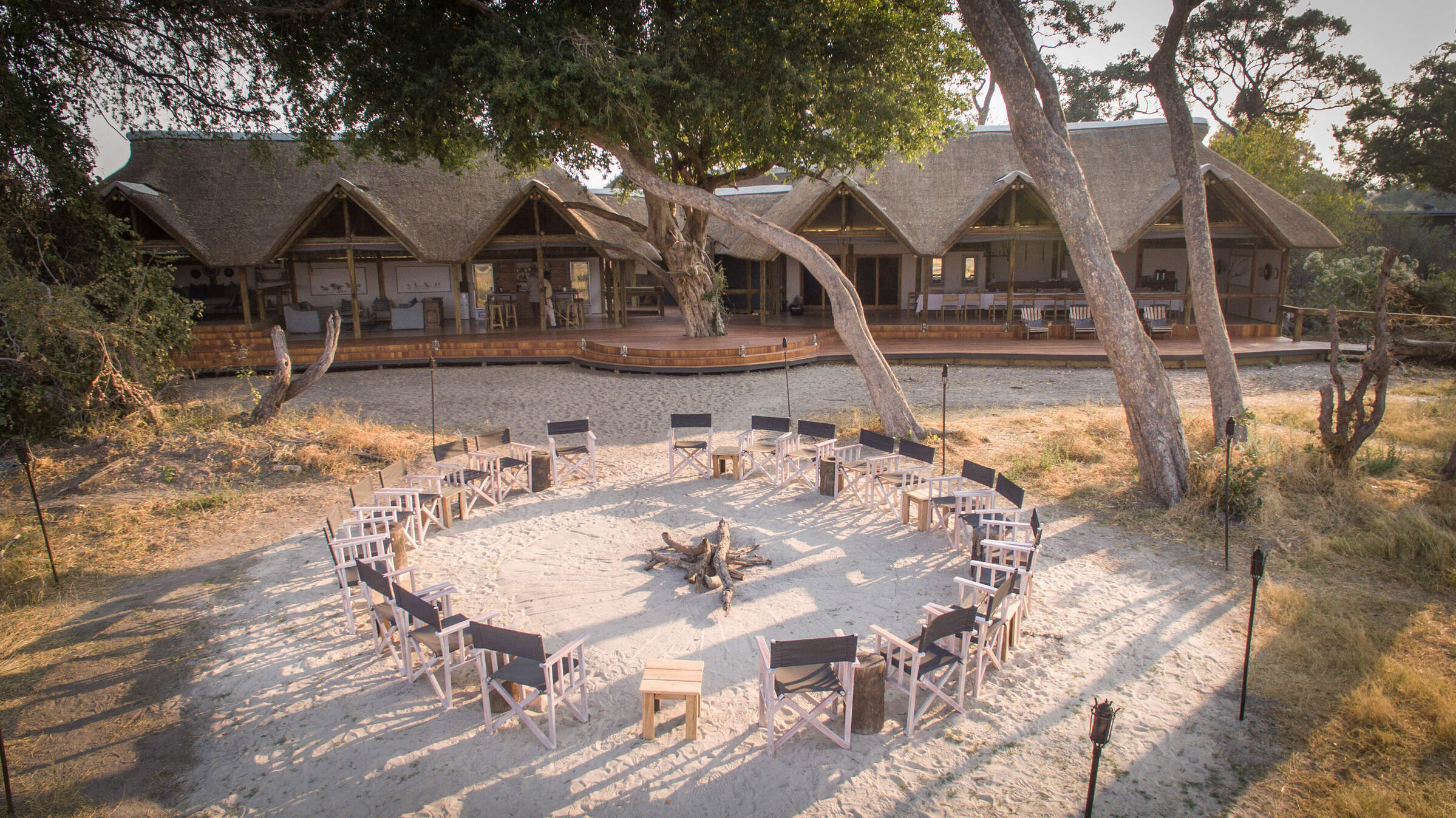
Splash Camp
Set in the Kwara Reserve, offering superb wildlife viewing year-round, Splash offers both land and water activities led by guides with a particular knack for tracking big game.
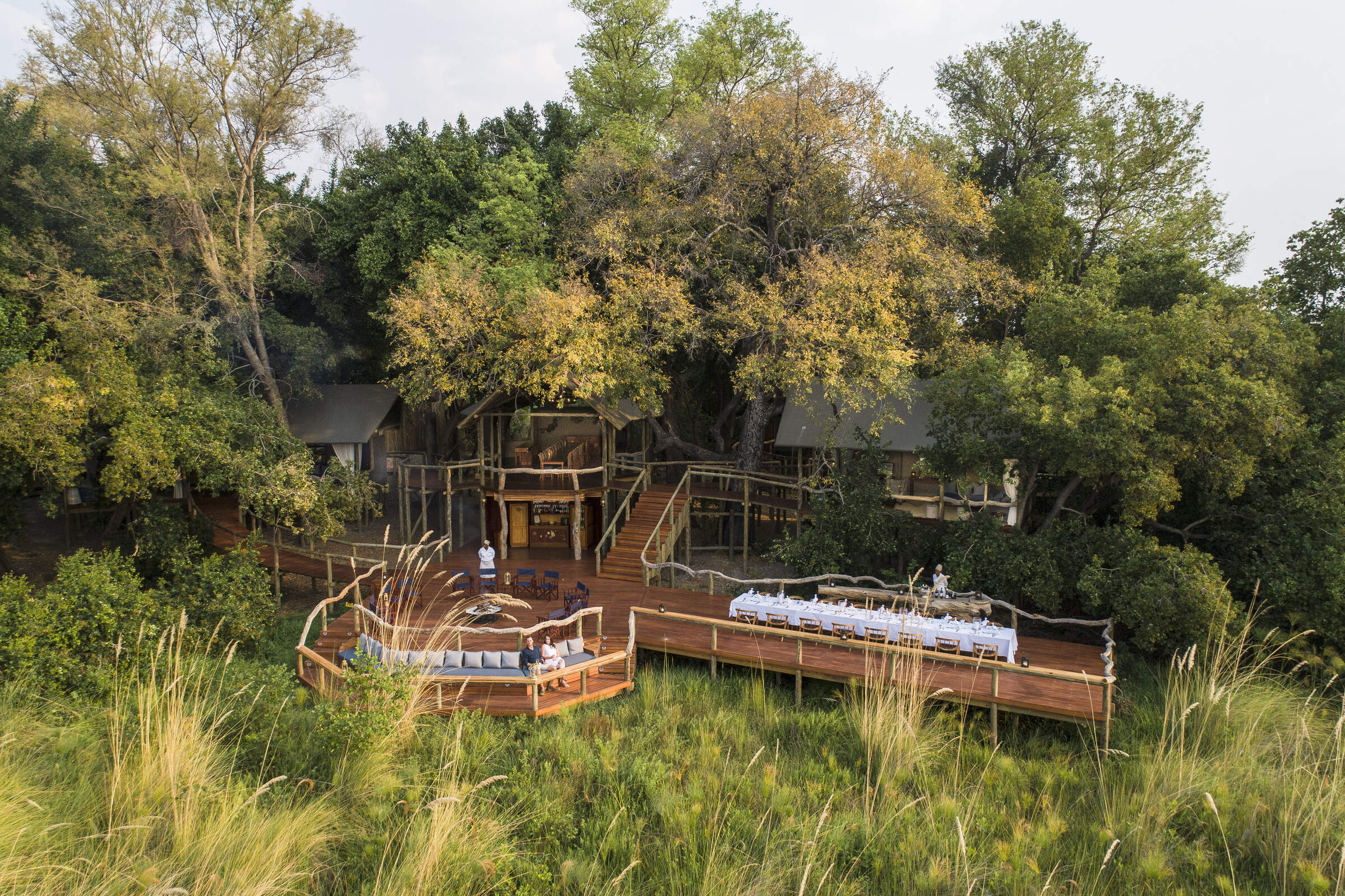
Shinde Camp
With experienced staff and a wealth of activities, Shinde offers a traditional safari in an exceptionally varied and wildlife-rich environment.
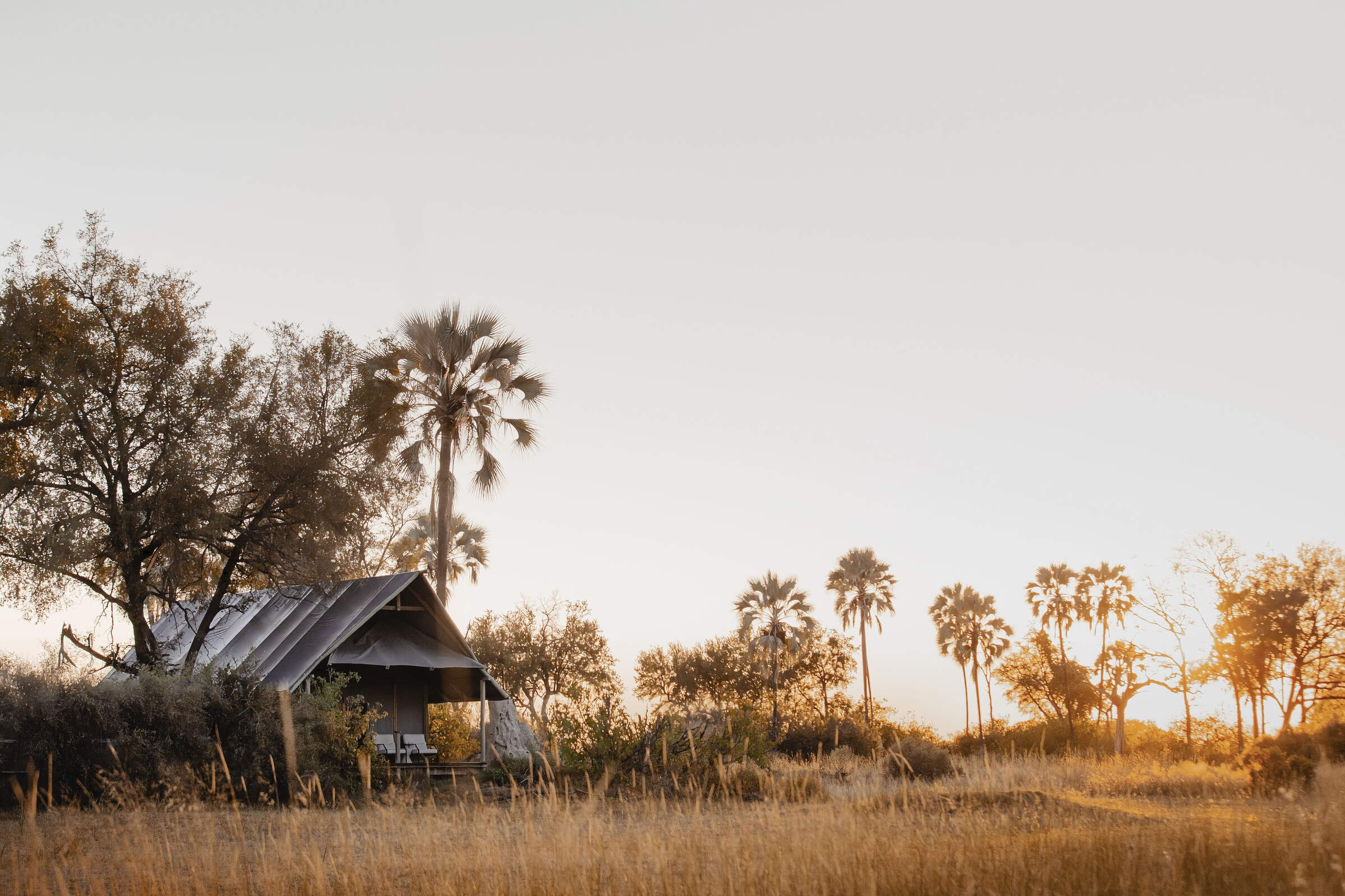
Chitabe Lediba
Chitabe Lediba, in Botswana's southern Okavango Delta, is a small family friendly safari camp; it offers great dry-land safaris and in our experience consistently delivers good game sightings.
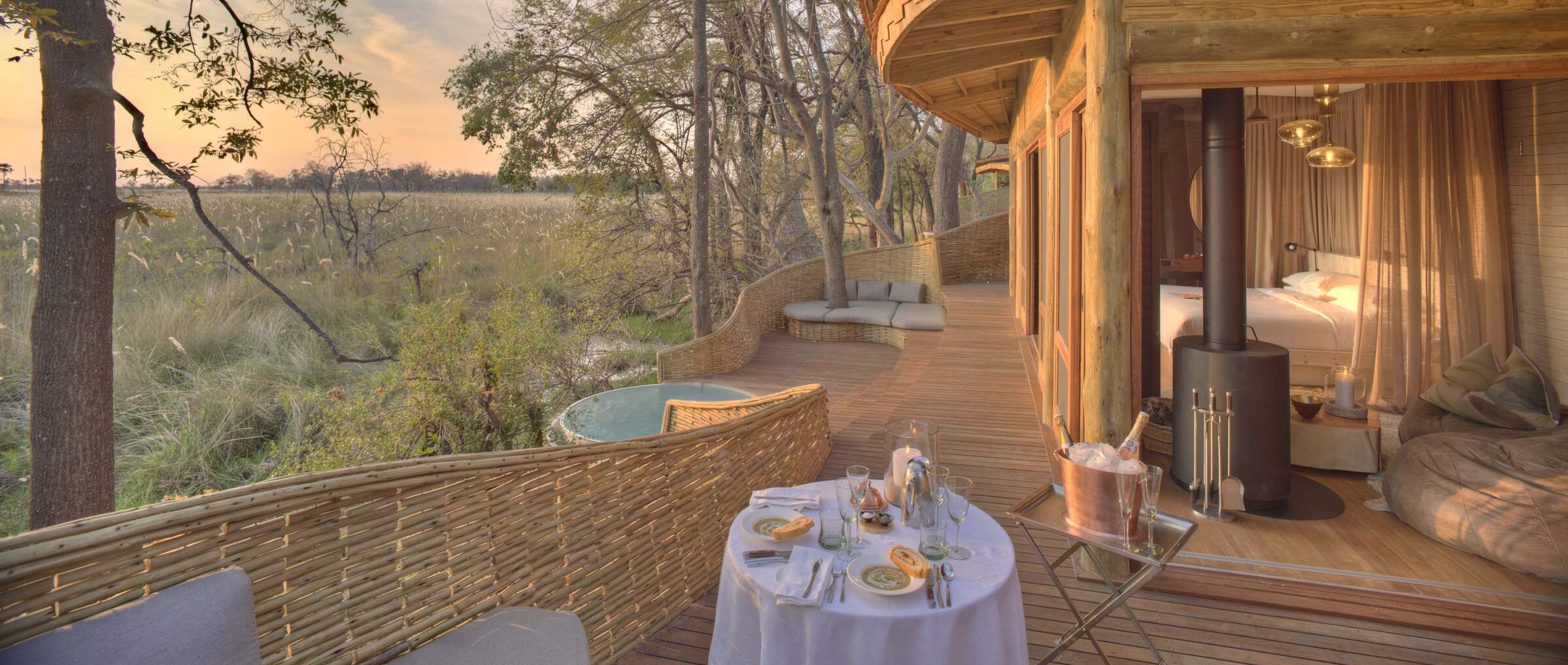
Sandibe Safari Lodge
The luxurious Sandibe Okavango Safari Lodge lies in a private concession in the heart of the Okavango Delta, beside Moremi Game Reserve, with superb big-game viewing.
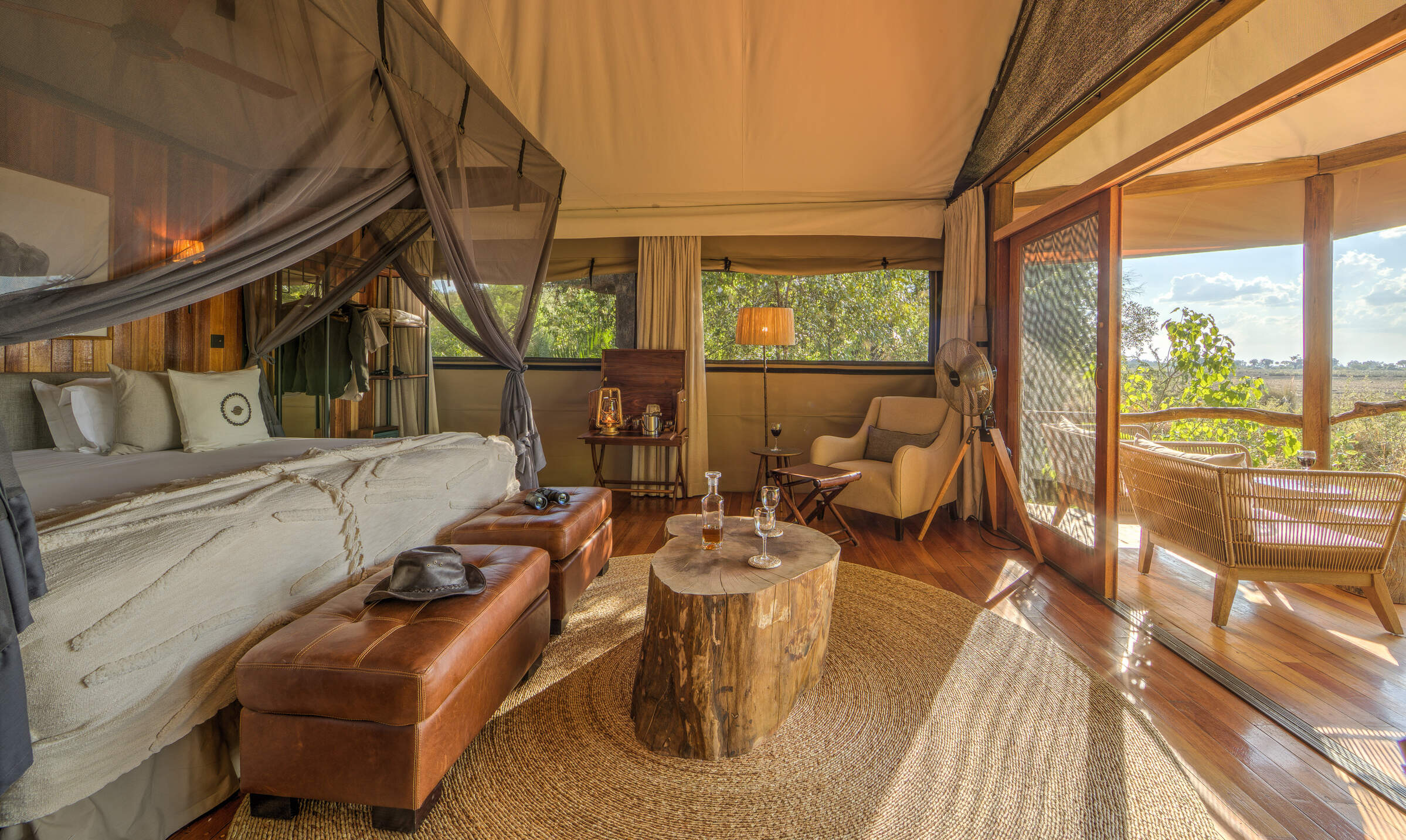
Kanana
In a beautiful part of the Delta, Kanana focuses on fantastic water activities and birding – including exclusive access to an impressive heronry.
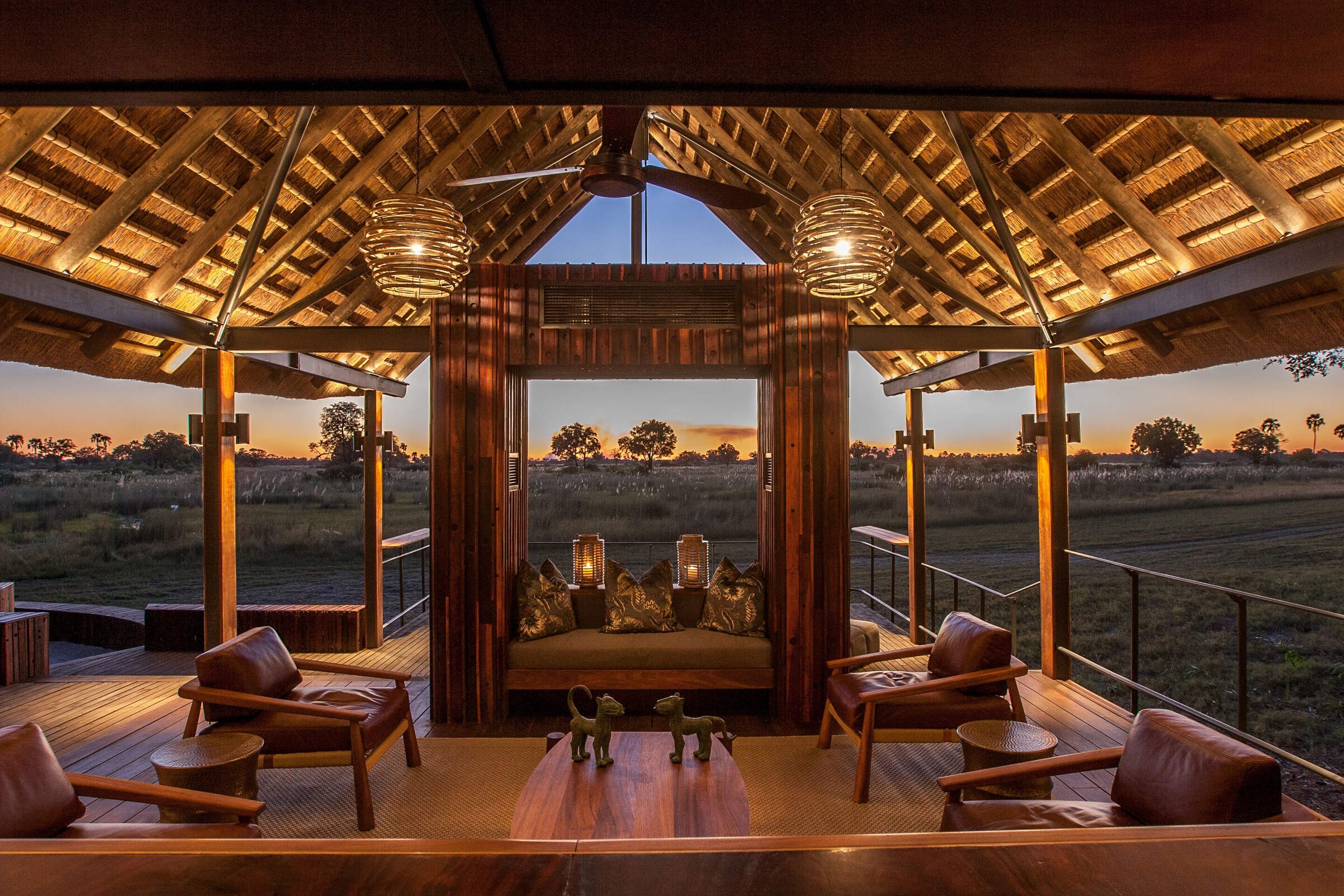
Chitabe Camp
In the southern Okavango Delta, the excellent Chitabe Camp concentrates on dry-land safaris in an area that we've found particularly good for wild dog sightings.
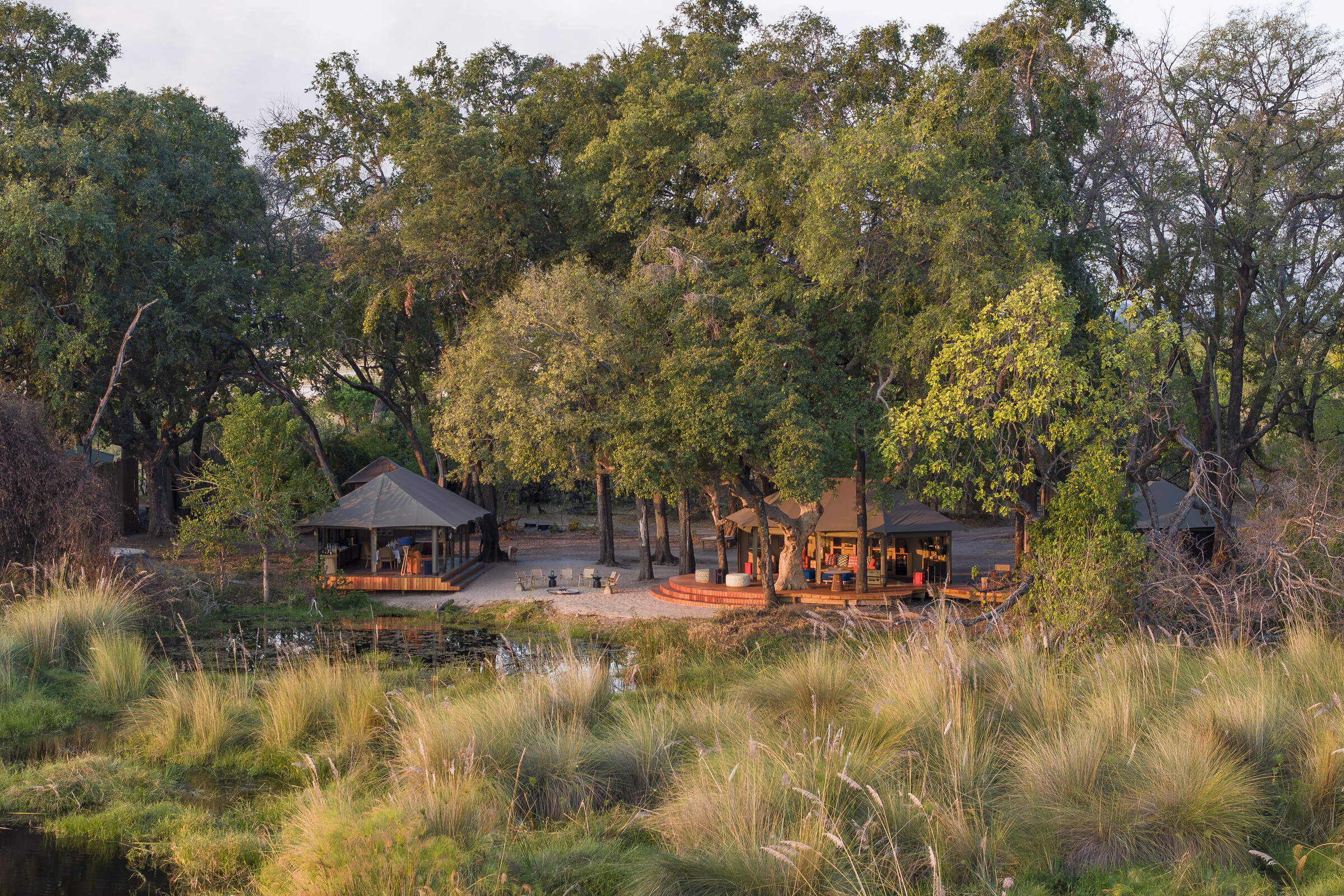
Shinde Footsteps
Small and simple, but comfortable, Shinde Footsteps focuses on walking safaris as well as game drives; it also runs a special children's programme so is particularly suitable for families.
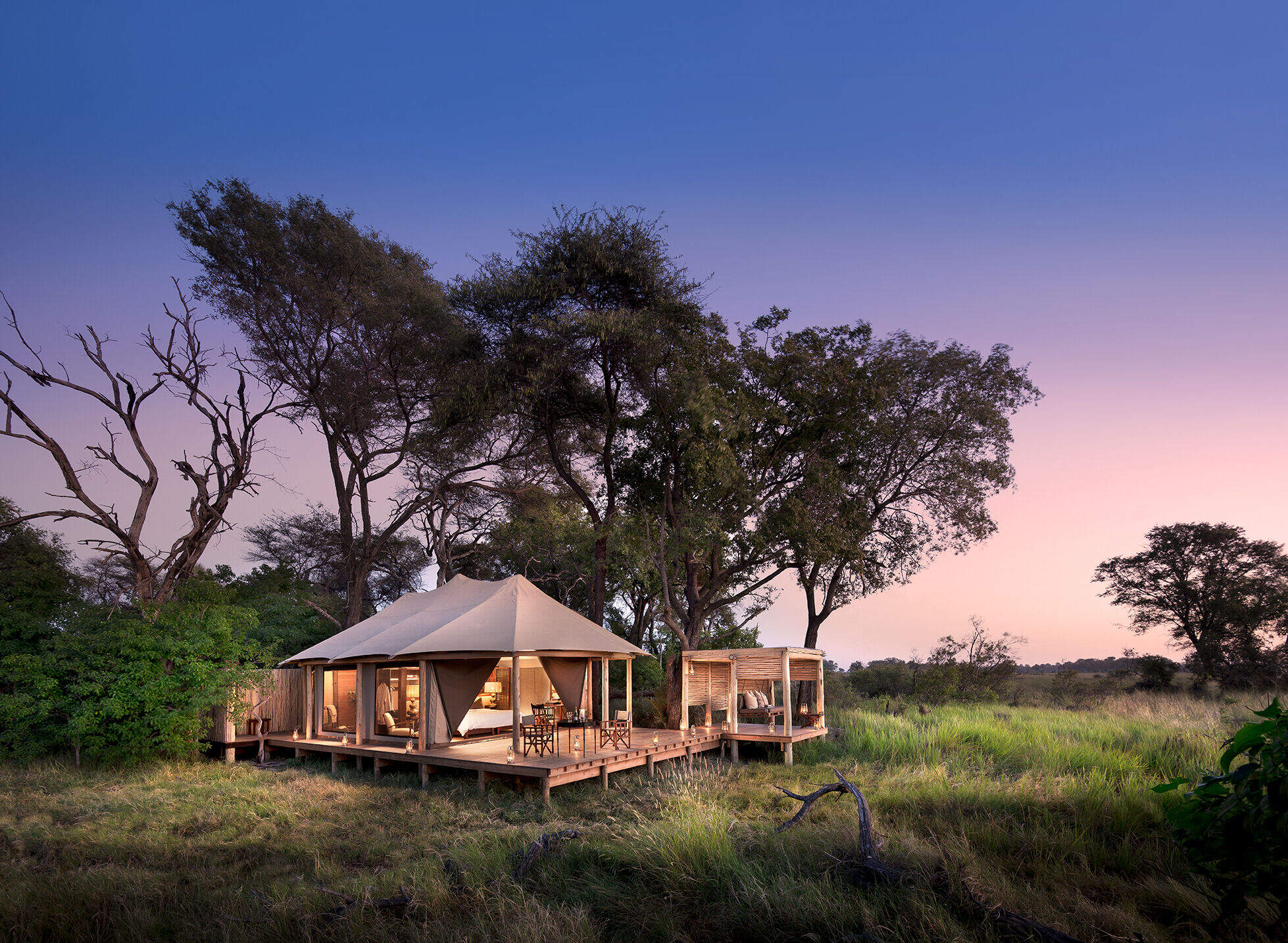
Nxabega Tented Camp
Nxabega offers a selection of both land- and water-based activities, plus very good guiding, food and service, but game viewing can be somewhat erratic.
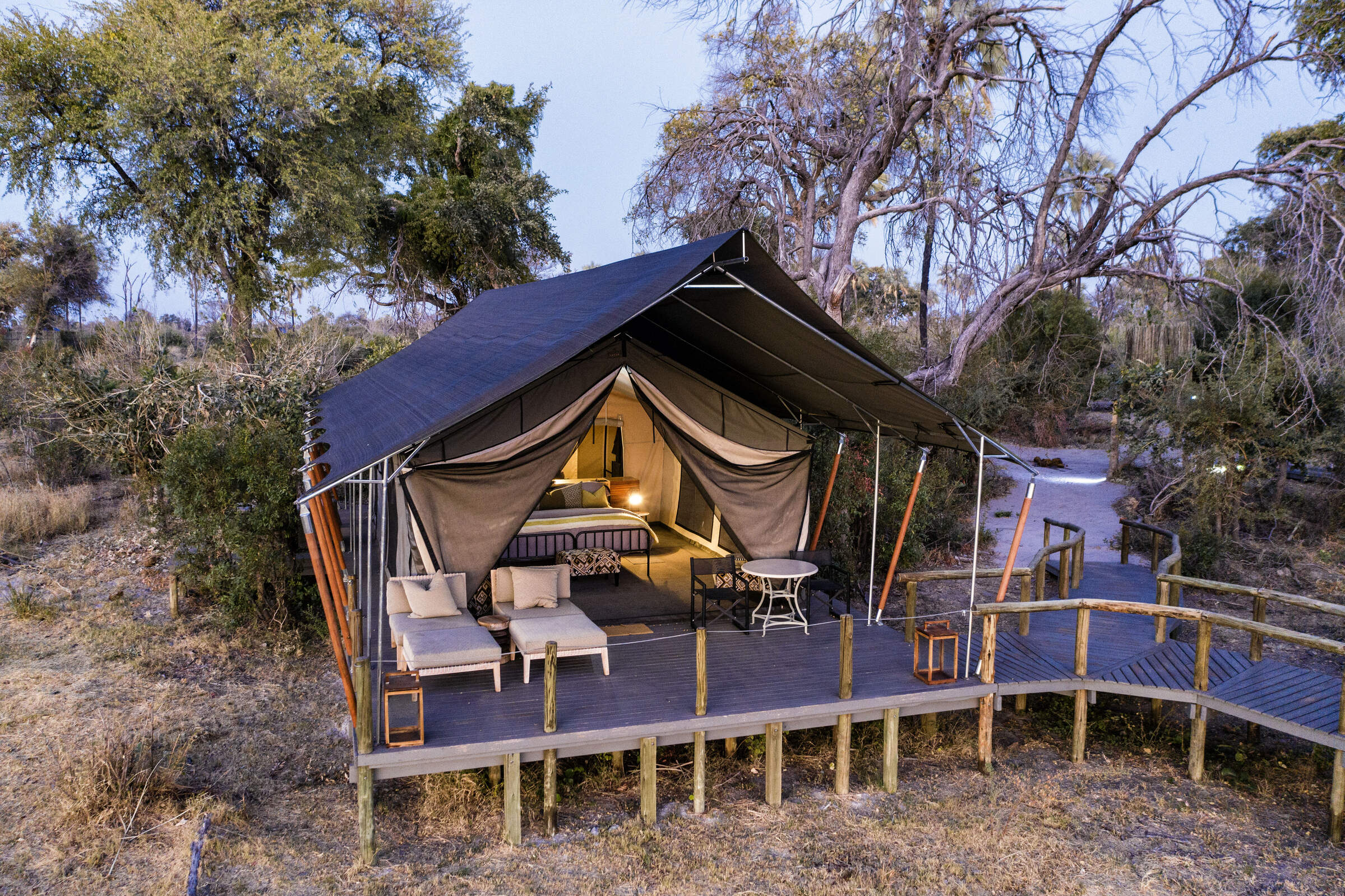
Gomoti Plains
Overlooking a tributary of the Gomoti River, Gomoti Plains Camp is a classically designed camp with very comfortable tents in a good game-viewing area.
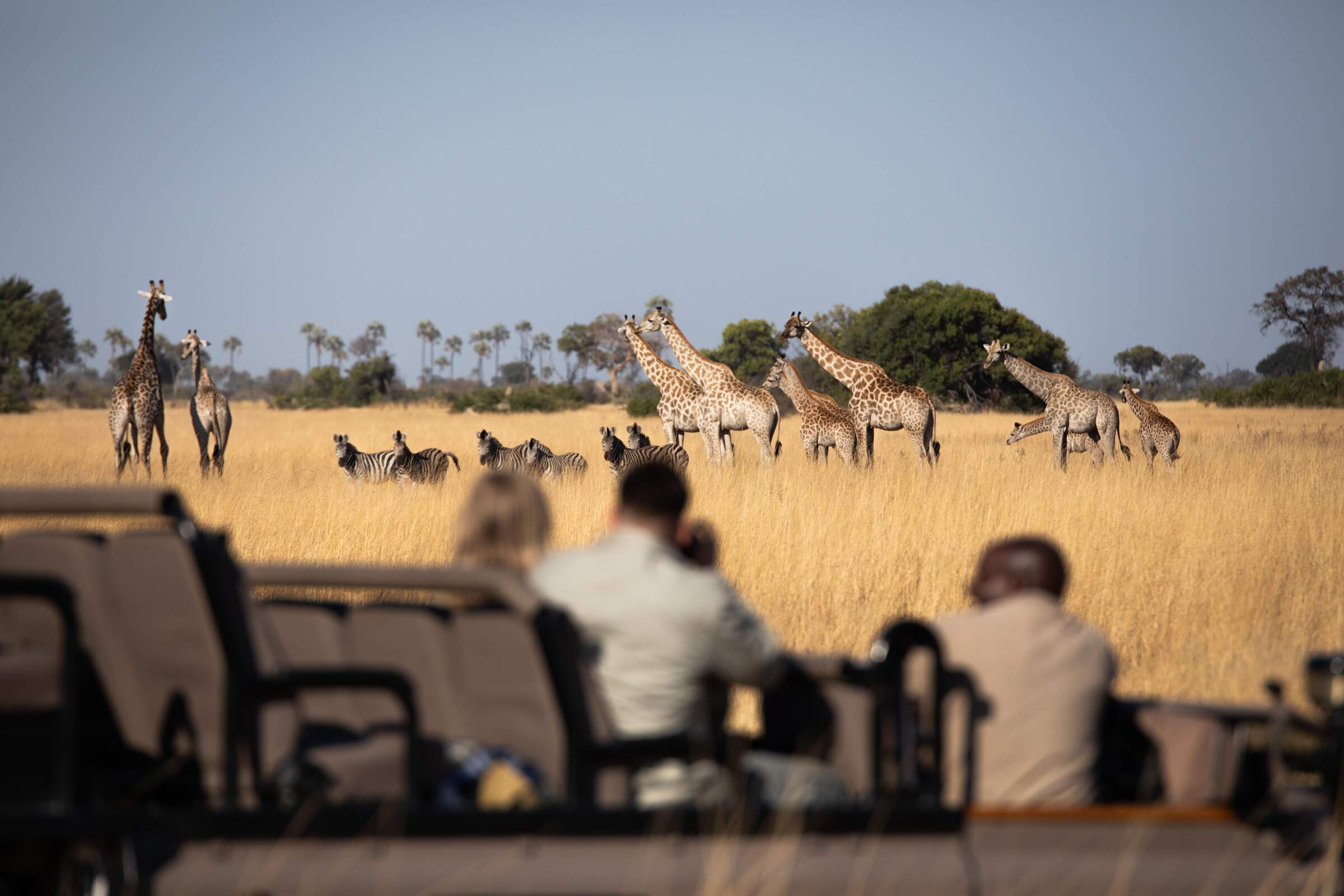
Tubu Tree Camp
A traditional tented camp with a distinctive tree-house feel, Tubu Tree offers some of the best game viewing in the Jao Reserve.
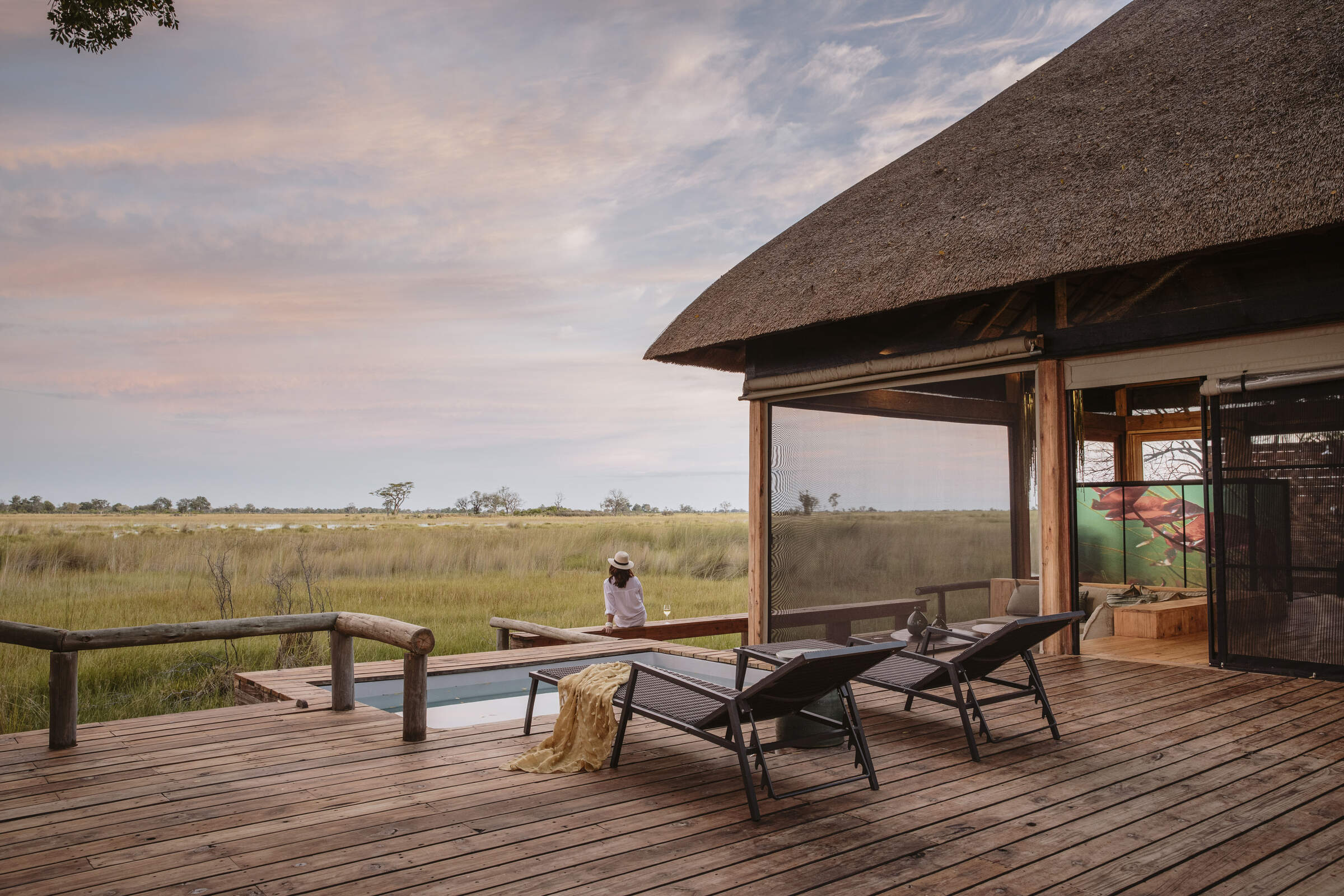
Vumbura Plains
Indulgently stylish and luxurious, Vumbura Plains offers superb game viewing and birding on an exceptionally varied private reserve.
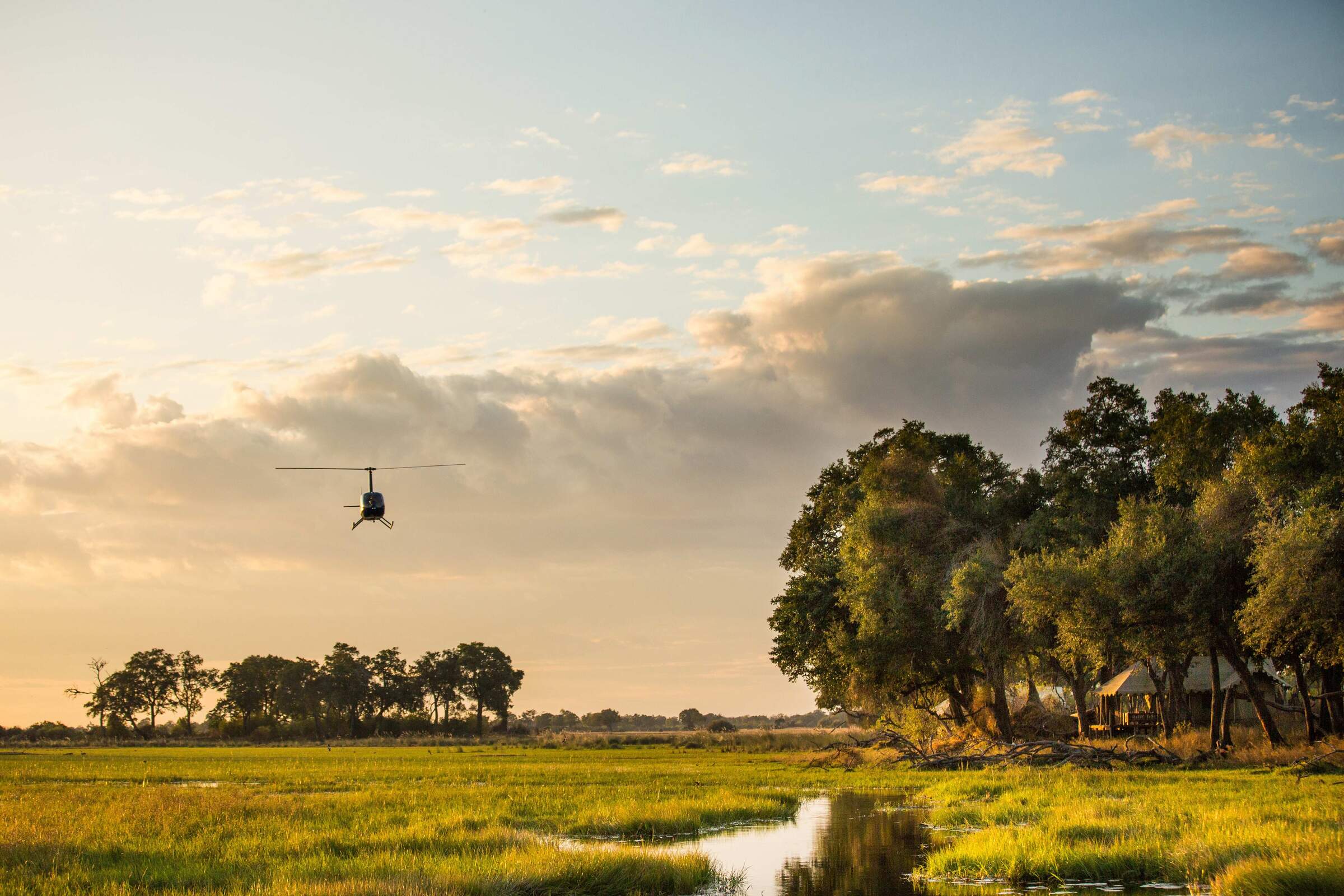
Duba Explorers Camp
Intimate and elegant, Duba Explorers Camp promises a firm safari focus in a remote corner of the Okavango, led by a team who value the highest guiding and hosting standards.
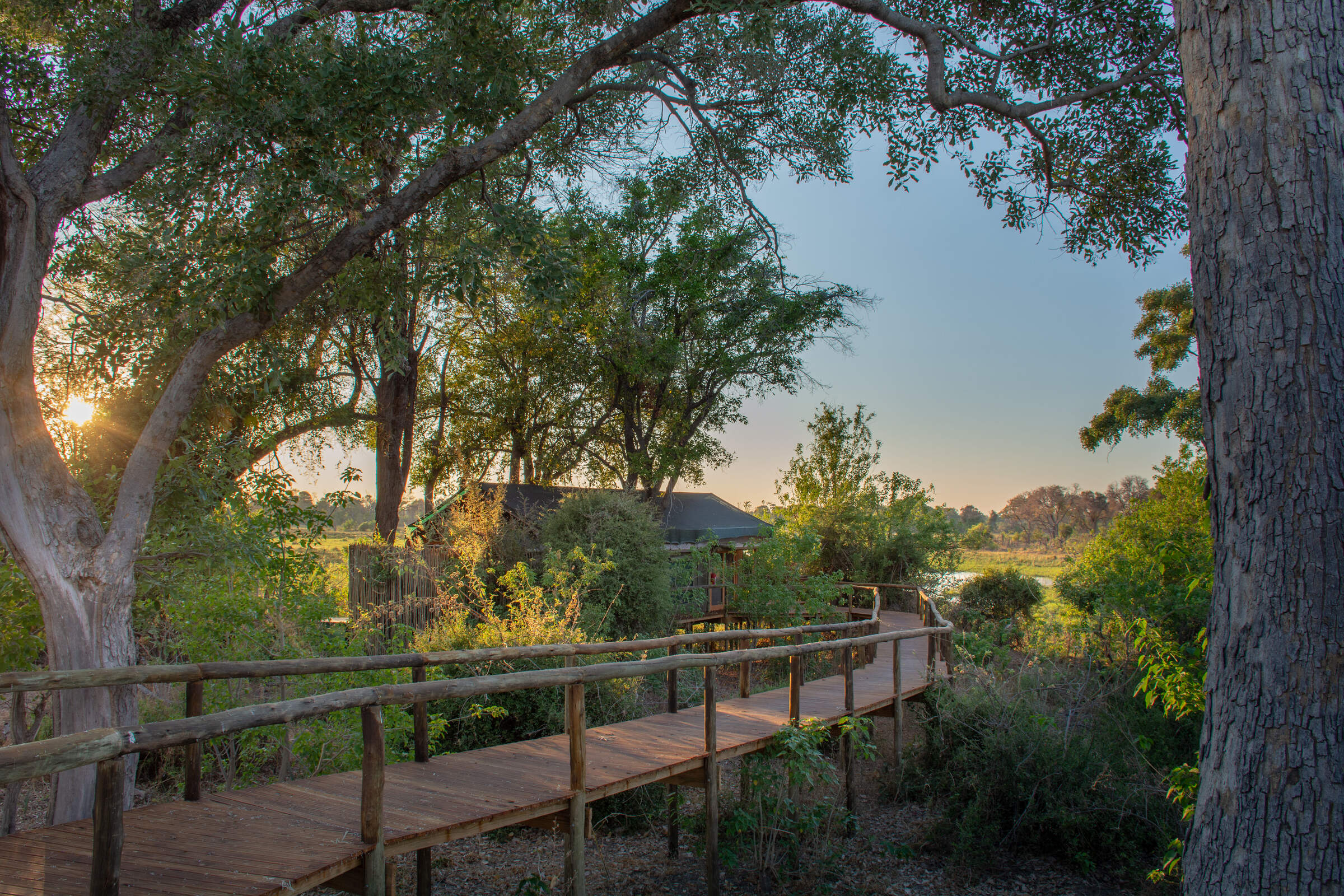
Mma Dinare
Beautifully located in a private concession overlooking the Gomoti River, the traditional Mma Dinare is very well-priced for the Okavango Delta.
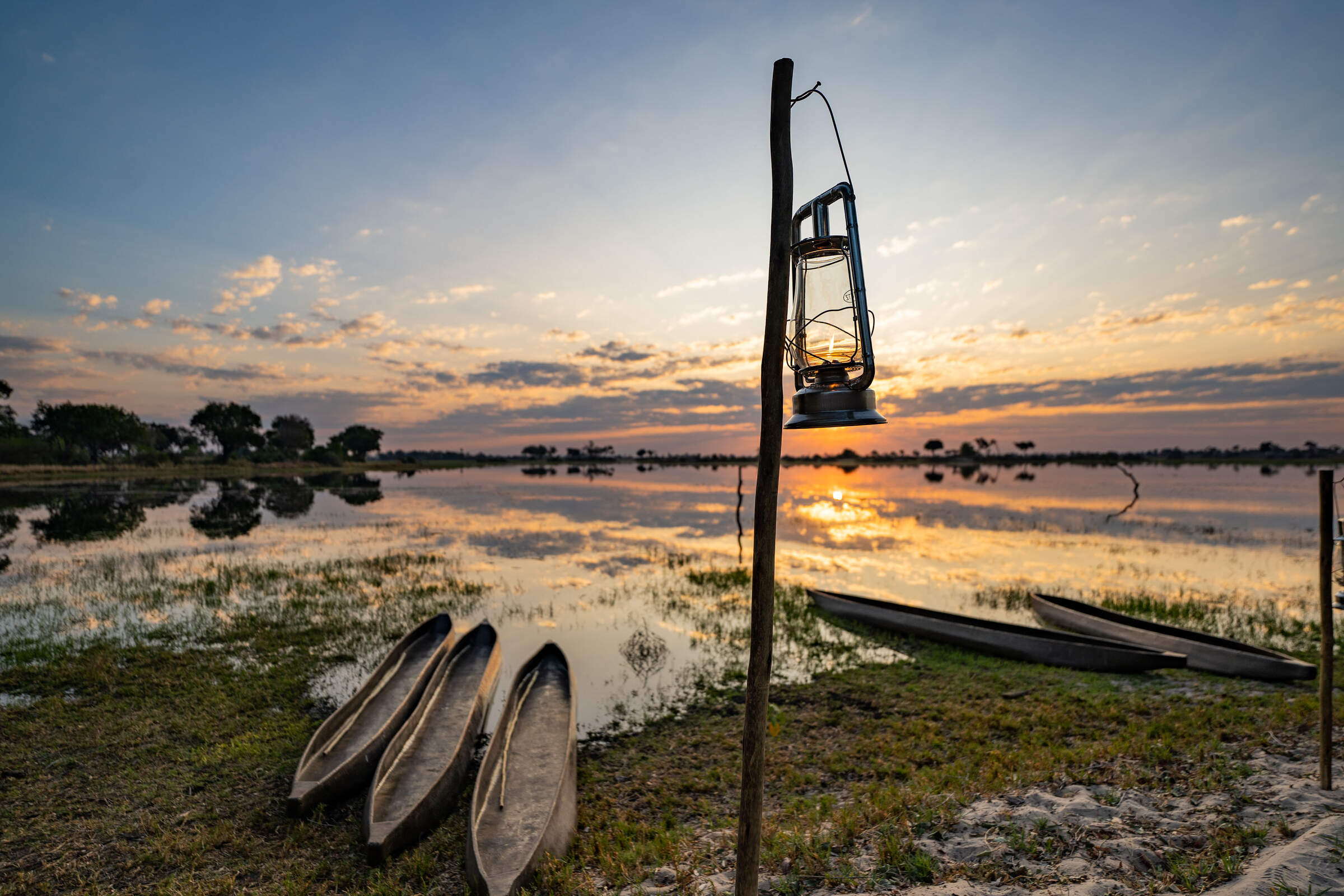
Pom Pom Camp
Amidst stunning Okavango Delta scenery, Pom Pom offers idyllic mokoro trips in season, great birdwatching, and increasingly good big-game sightings, especially leopards.
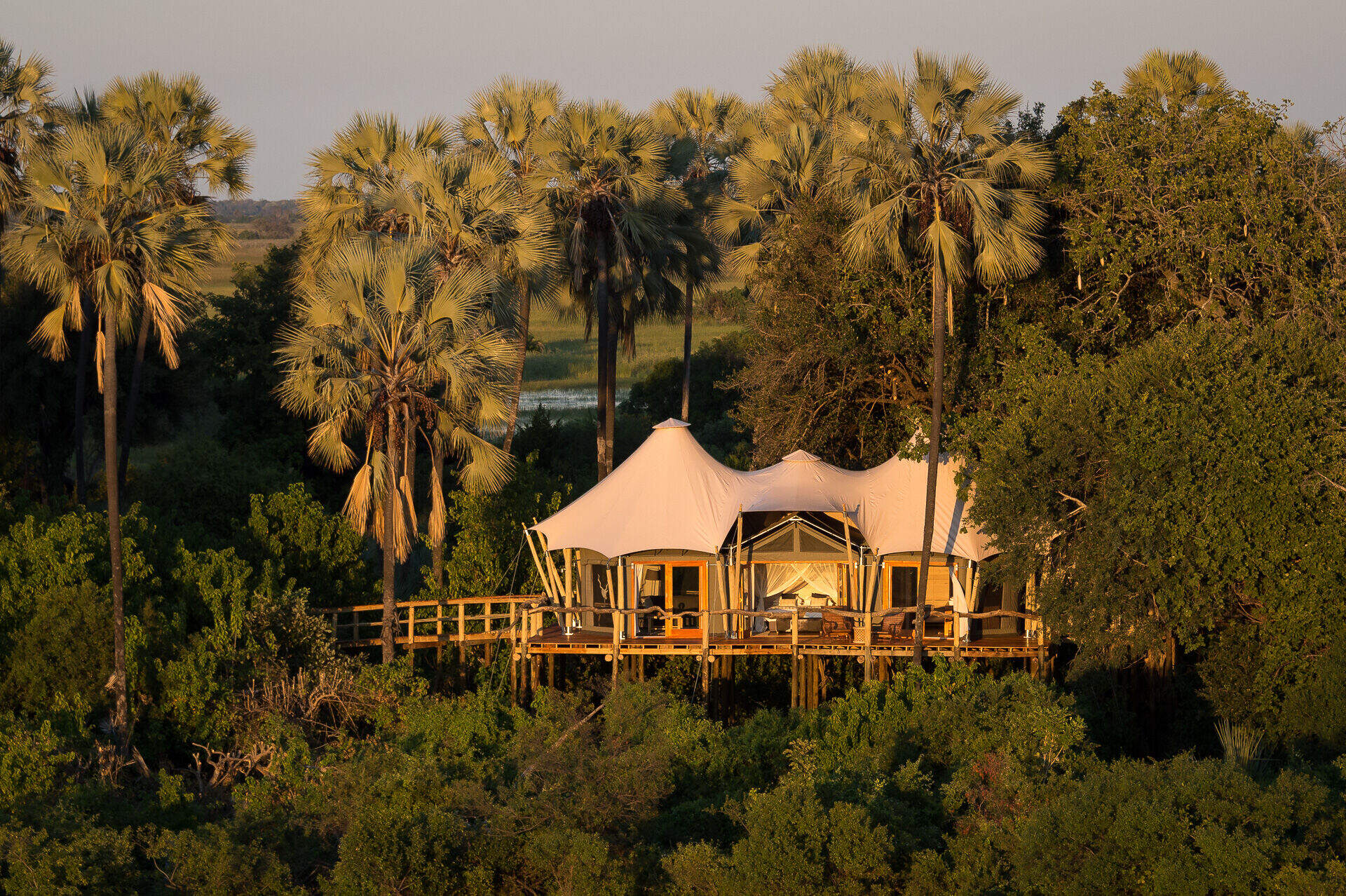
Kwetsani Camp
Deep in the Delta, overlooking a floodplain, Kwetsani Camp is a small, high-end camp with good access to areas for land and water-based activities.
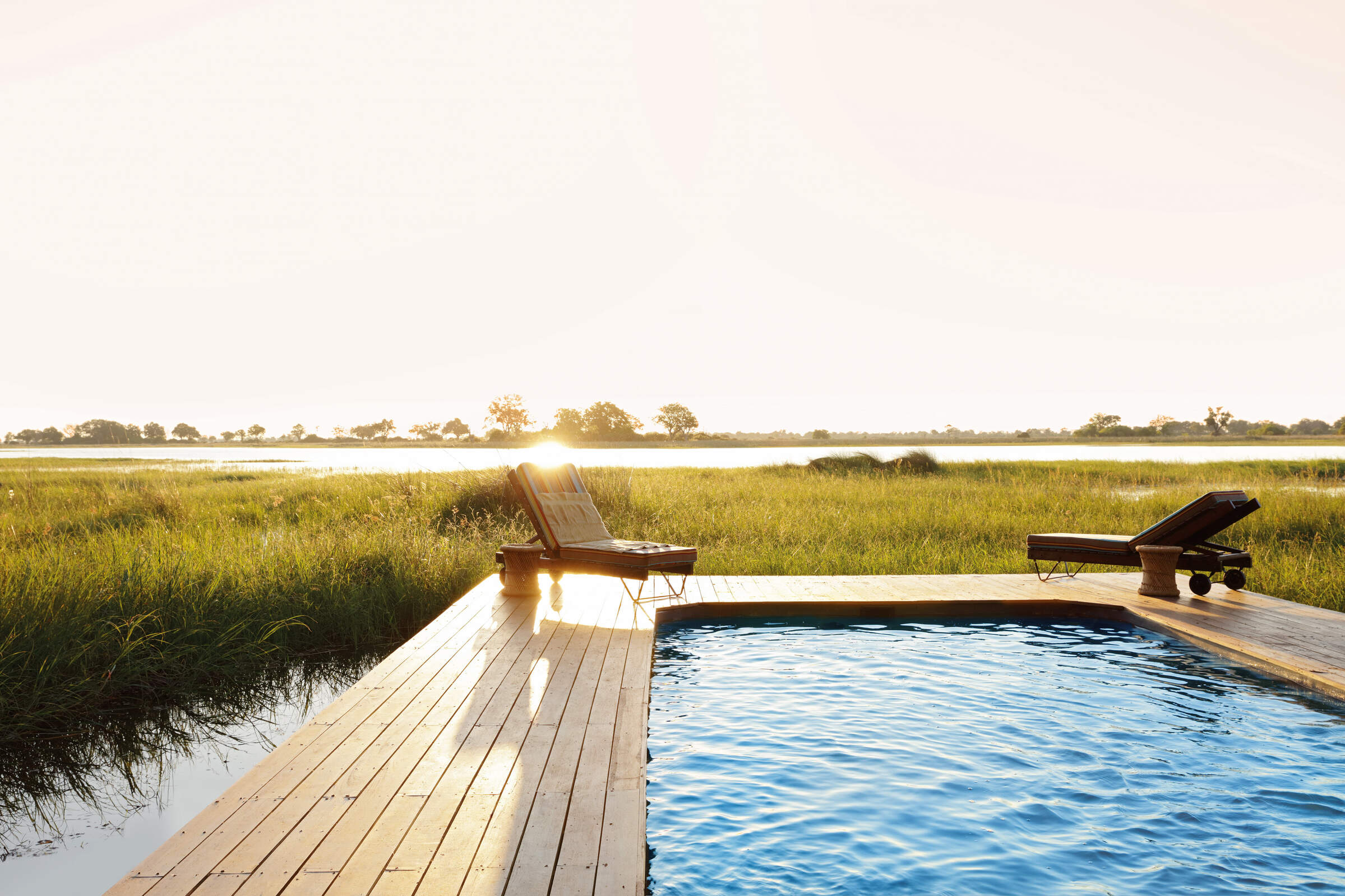
Mapula Lodge
For an affordable yet varied safari encompassing a range of eco-systems, the traditional Mapula Lodge takes a lot of beating.
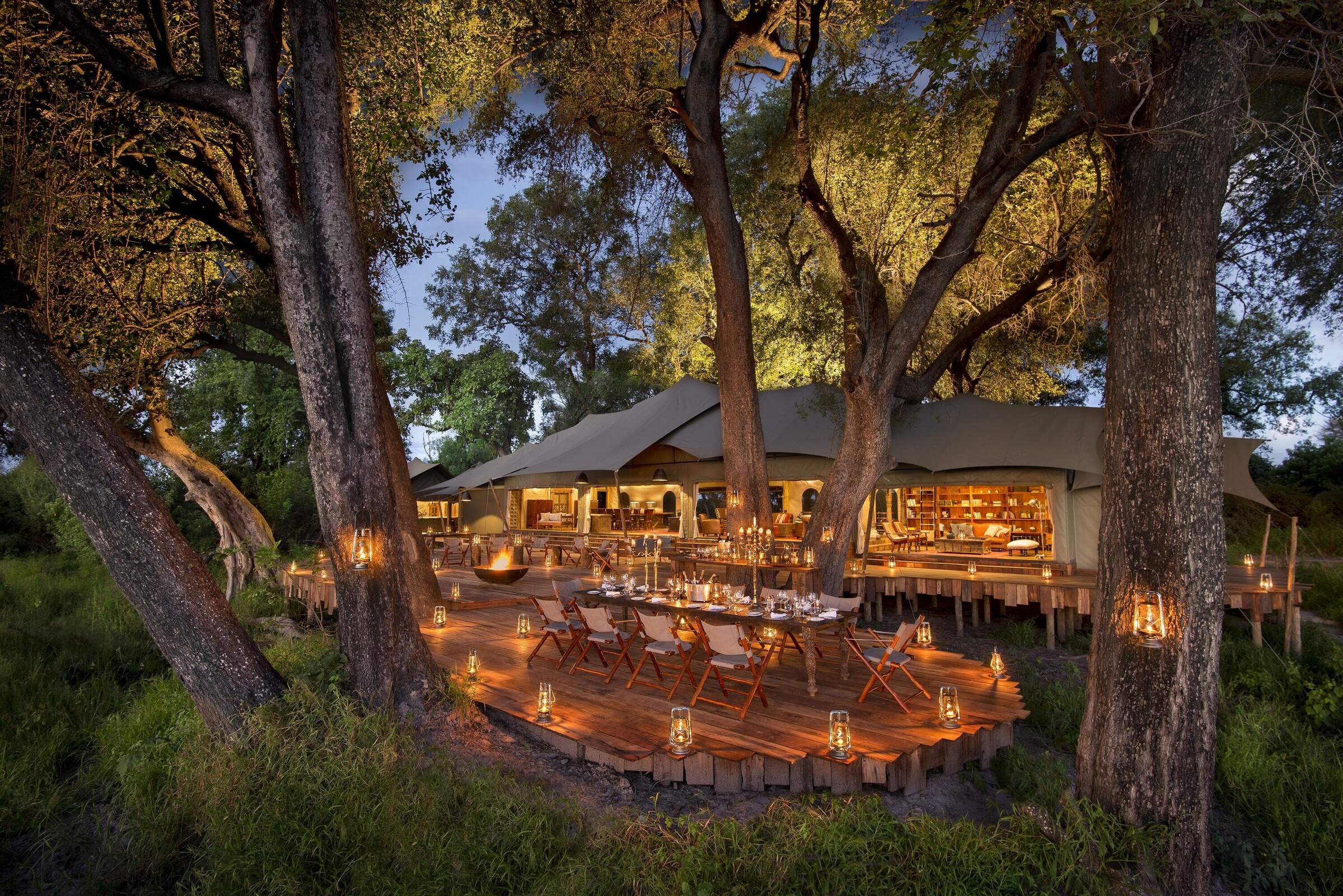
Duba Plains Camp
Duba Plains Camp is a traditional yet luxurious safari camp, best known for the thrilling lion behavior interaction that is often see during the day.
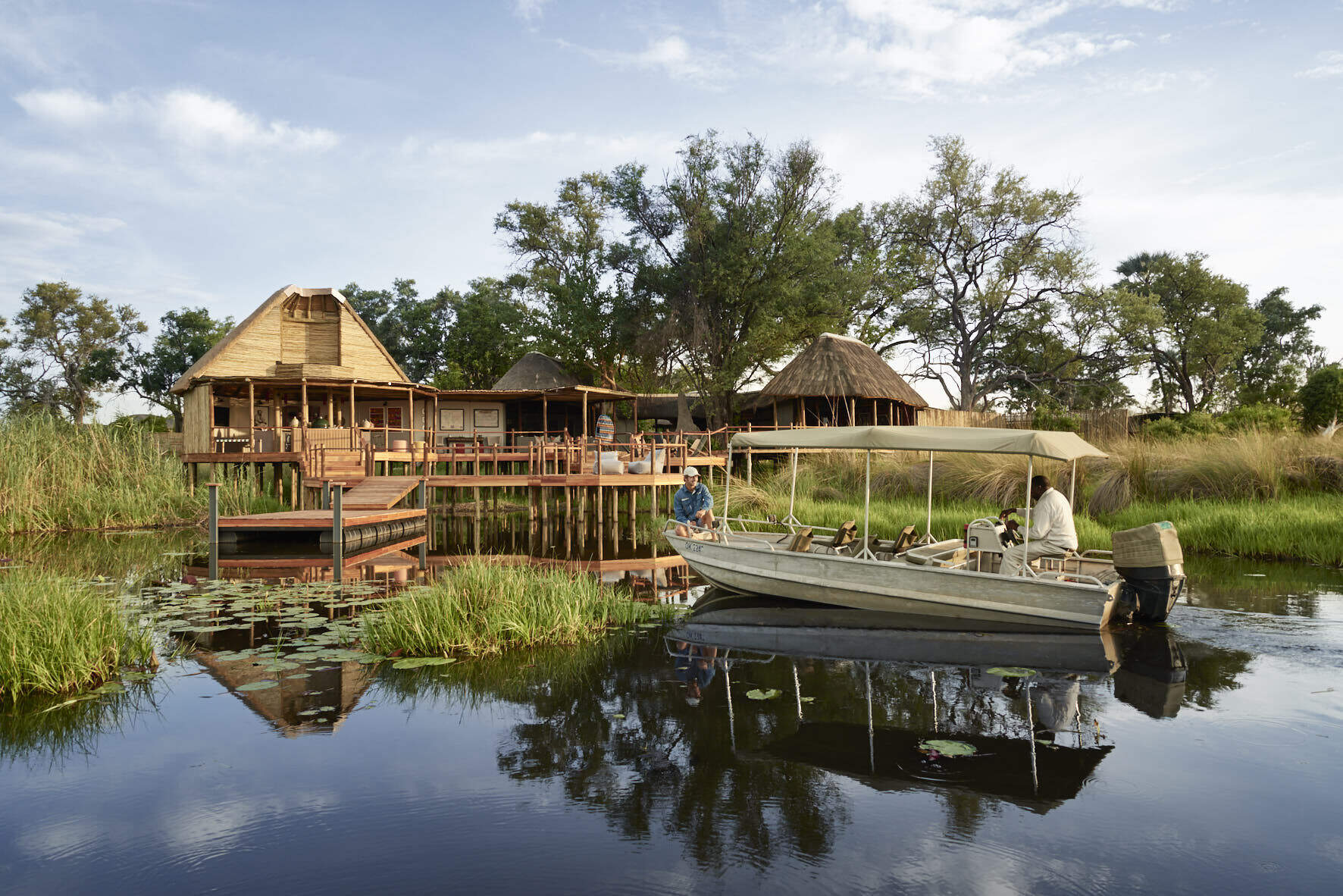
Baines' Camp
Baines' Camp is a well-run, intimate camp in a pretty part of the Okavango, offering a range of activities and the option to spend a morning walking with elephants.
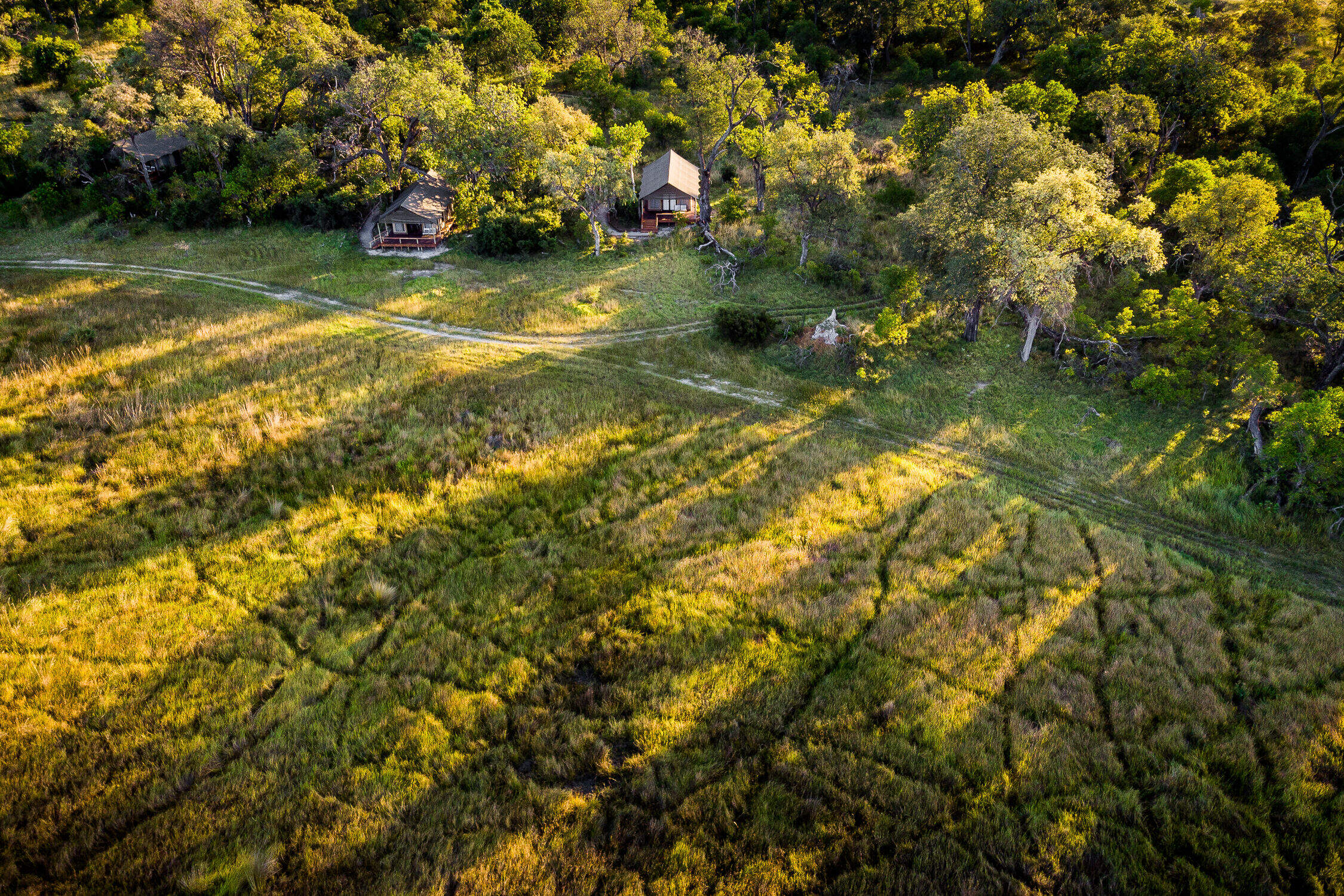
Stanley's Camp
In a private concession south of Moremi Game Reserve, Stanley's Camp offers 4WD game drives, seasonal water activities and a superb elephant interaction.
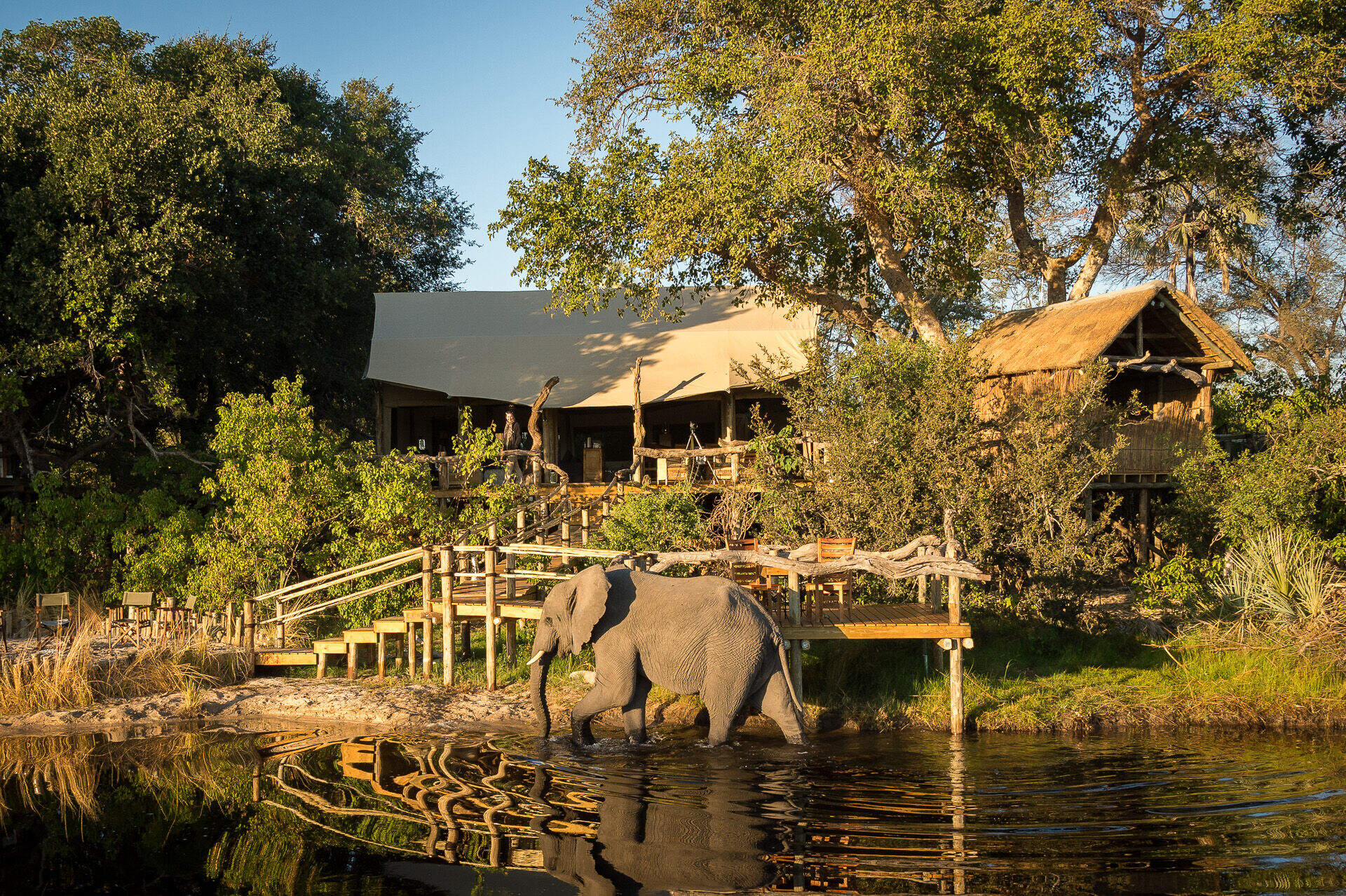
Little Tubu
Little Tubu is a new, traditional camp with just three tented chalets and a distinctive tree-house feel. The areas around it can be explored by water and land-based activities year round.
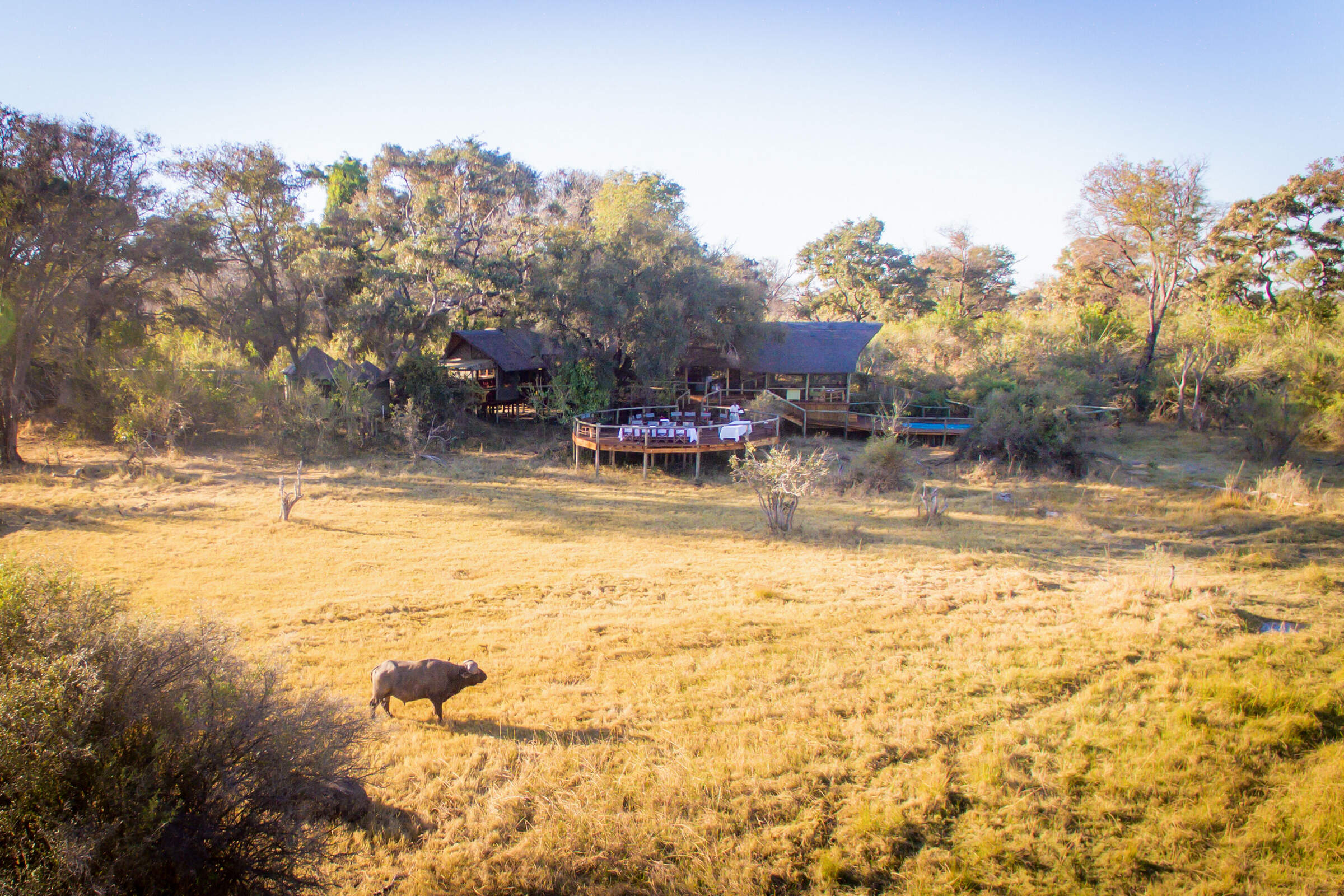
Rra Dinare
Located in a private concession in the southern reaches of the Okavango Delta, overlooking the Gomoti River, Rra Dinare is a traditional-style, well-priced camp.
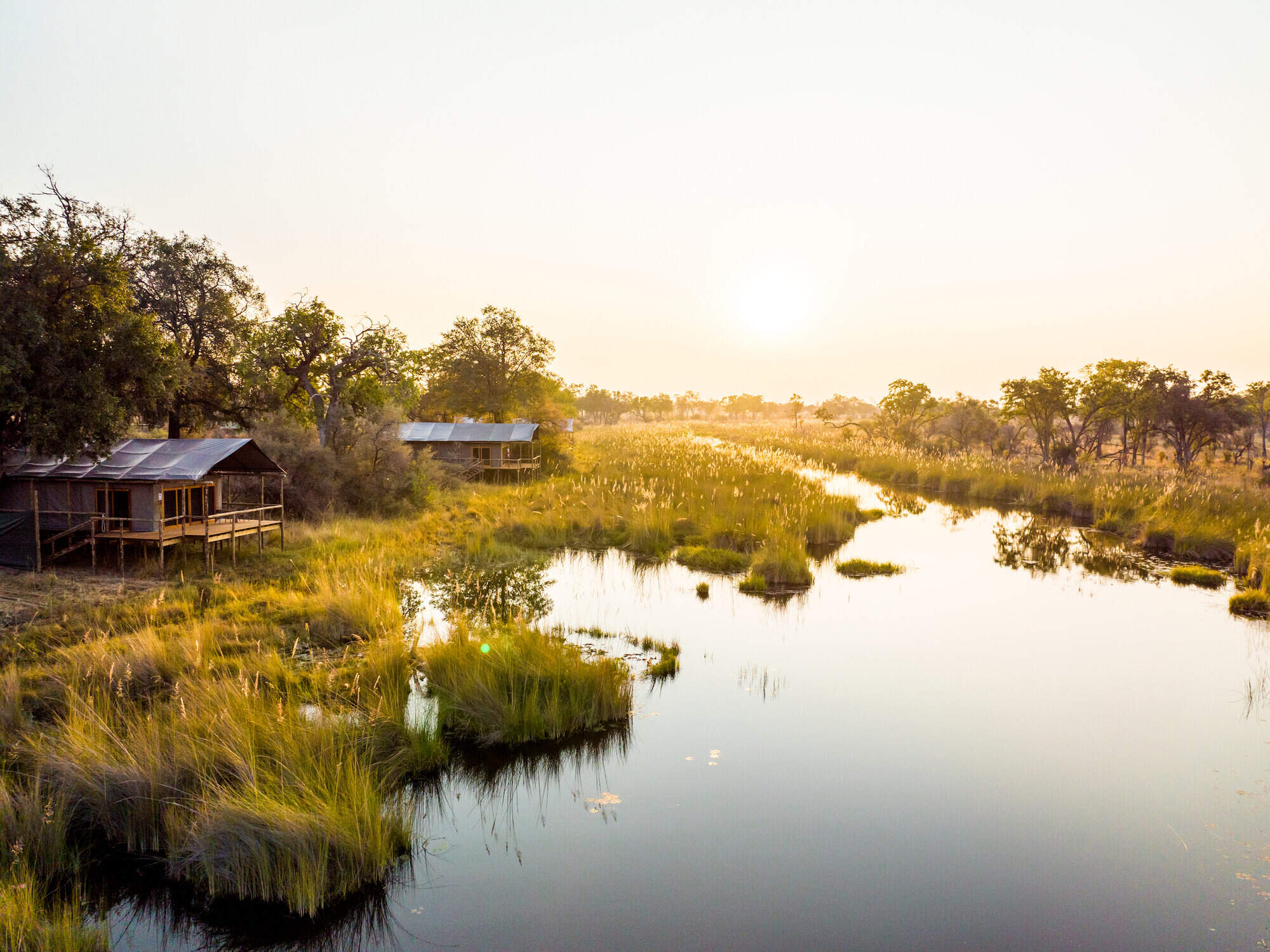
4 Rivers
4 Rivers is a new camp in a previously in accessible area of the excellent Kwara concession.
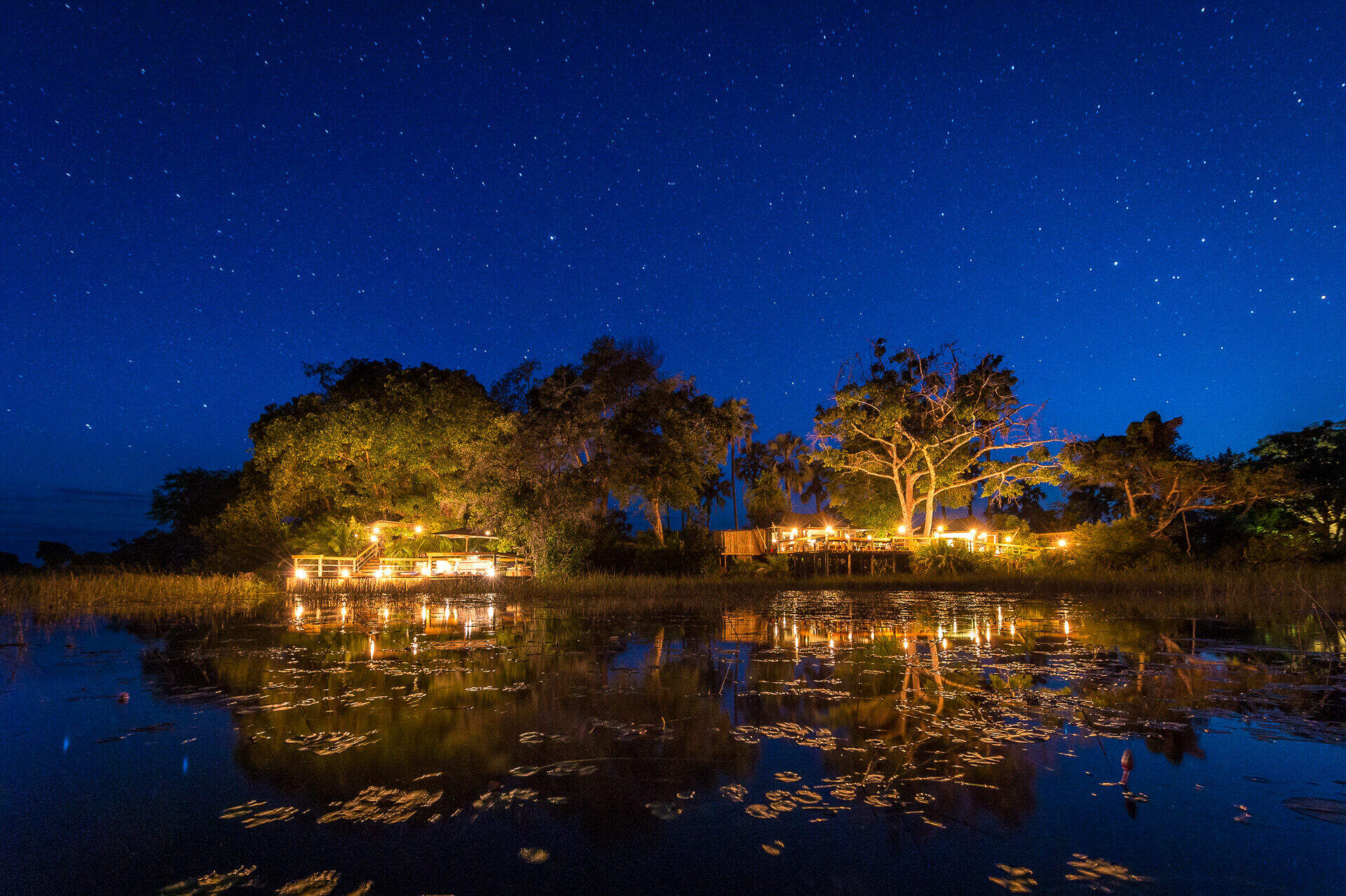
Pelo Camp
In a pristine wilderness environment deep in the Okavango Delta, the seasonal Pelo Camp is tented yet comfortable, with activities focusing on excursions by mokoro.
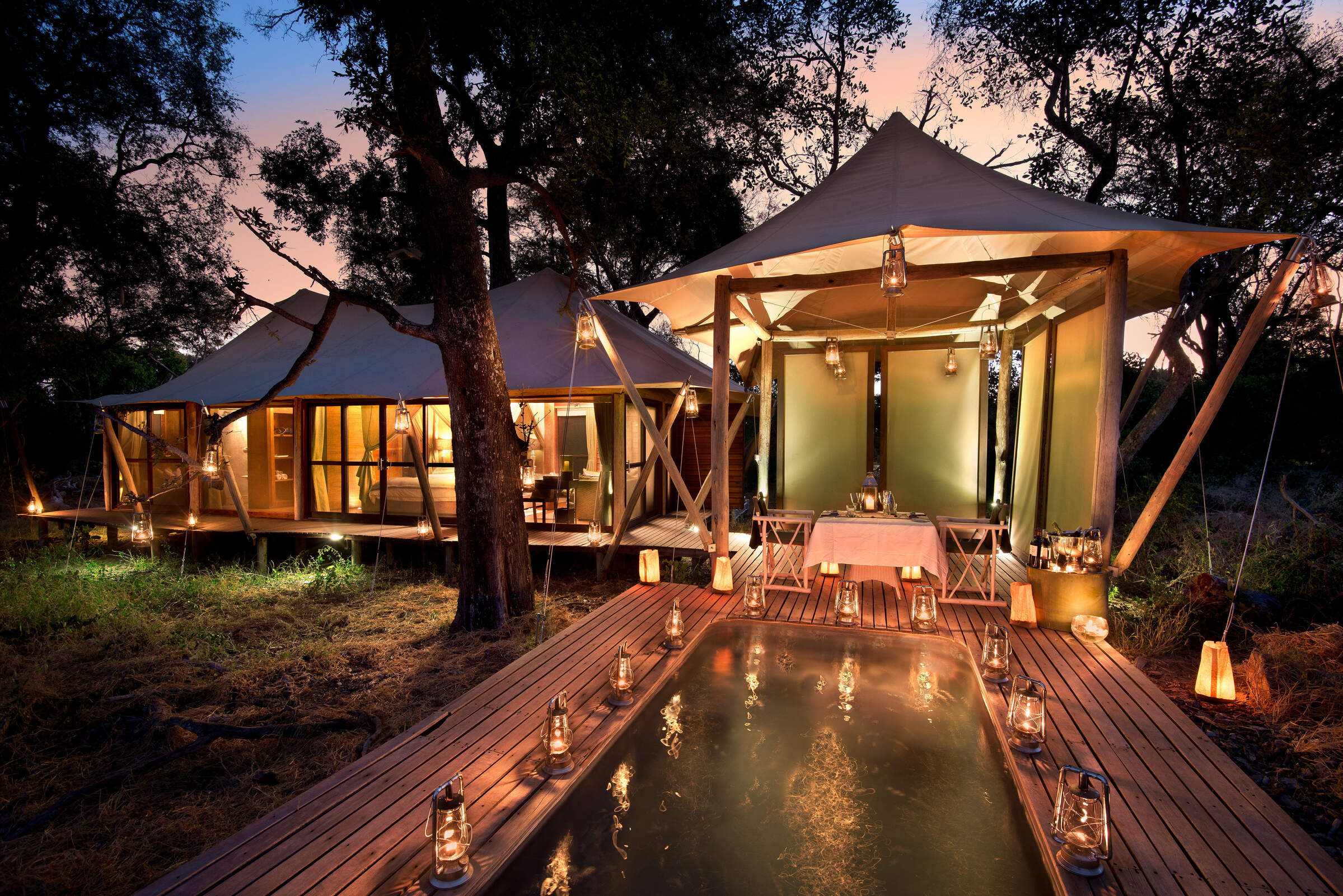
Xaranna
Xaranna is a plush tented camp amongst the idyllic waterways and islands of the Delta. Each air-conditioned tent has a plunge pool. Water activities and pampering are the focus here.
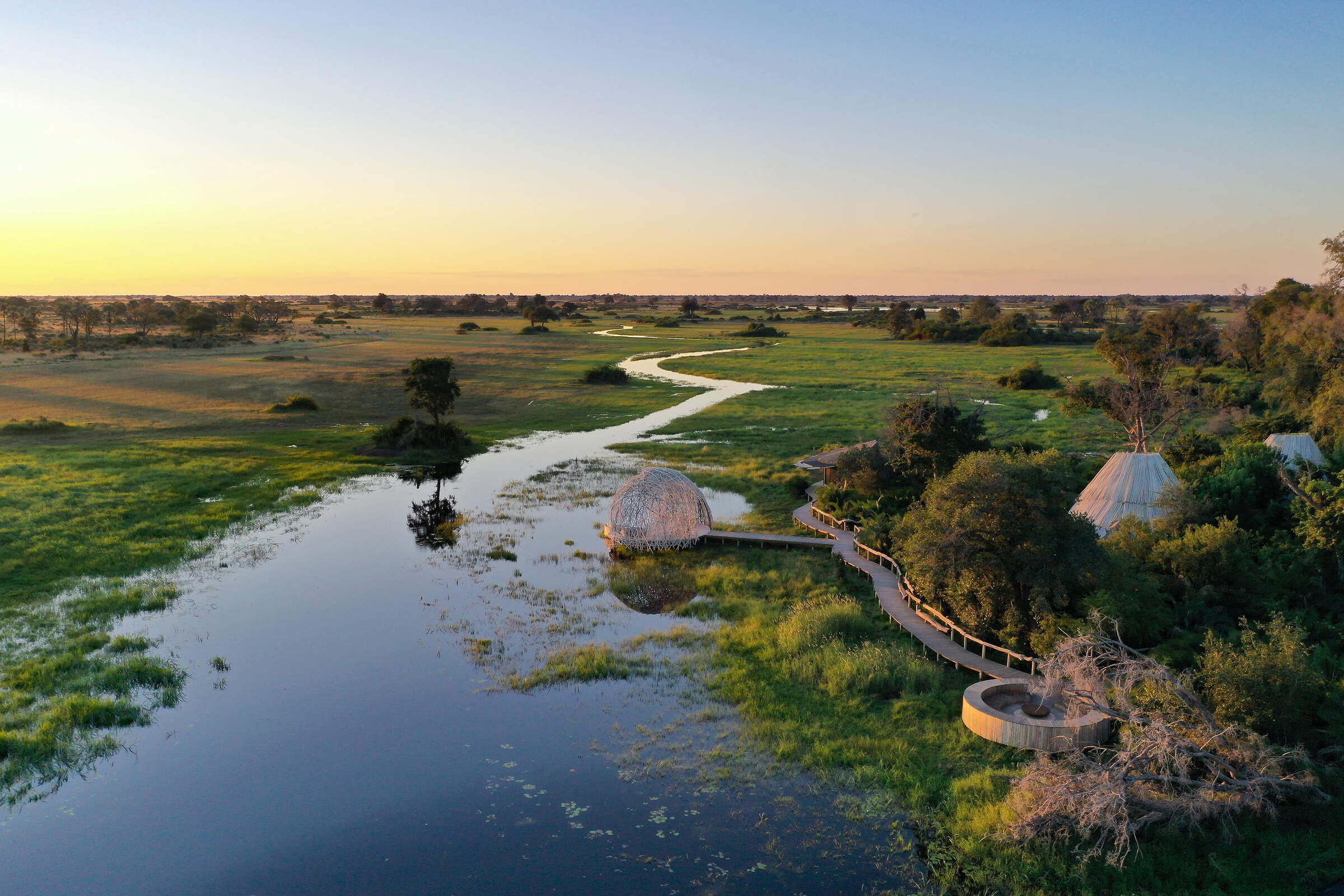
Jao Camp
In a beautiful area with fantastic water activities, Jao combines an idyllic location with high levels of luxury and service, and a top-end spa.
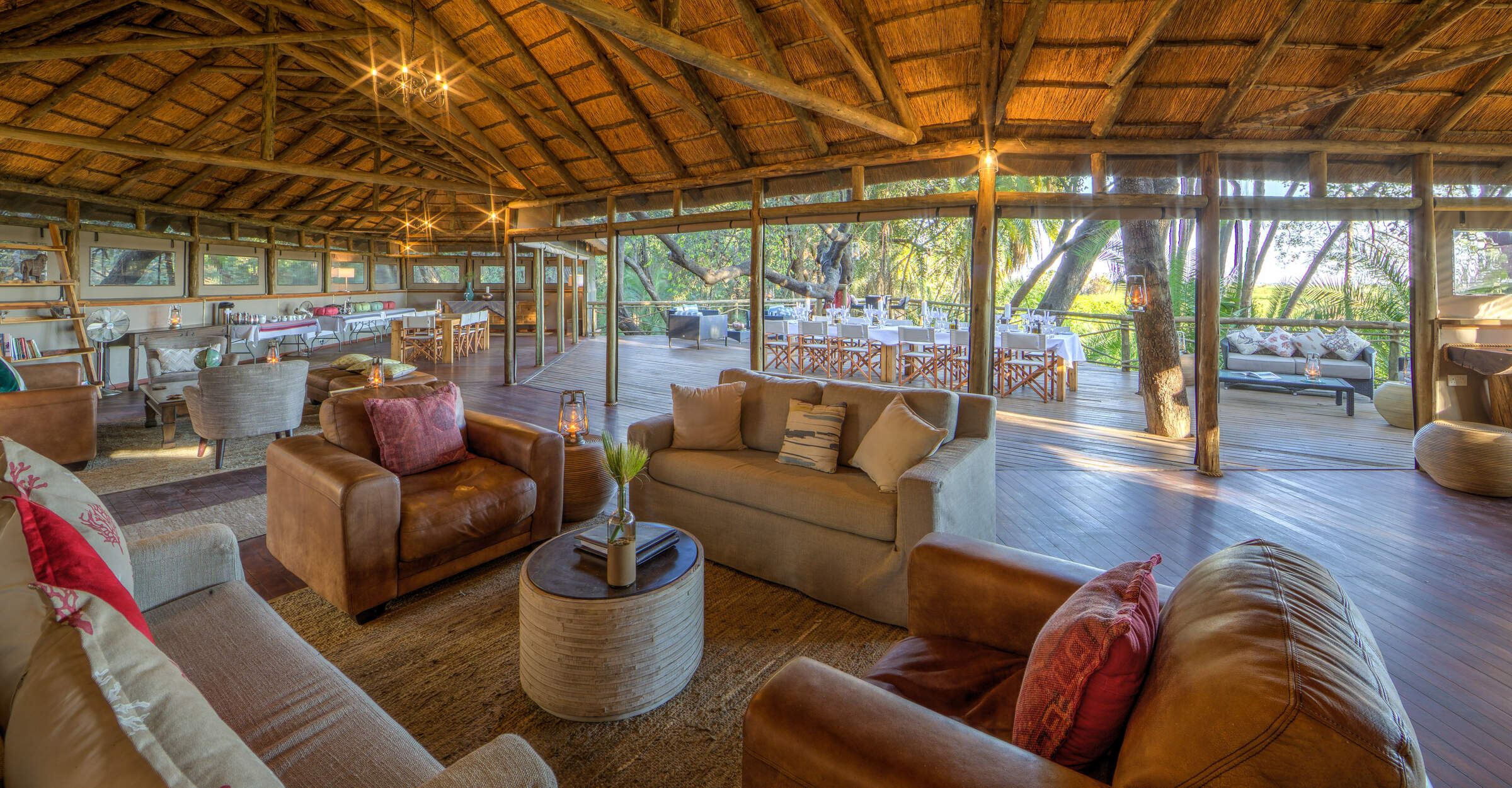
Setari Camp
Setari Camp stands on an island dotted with palm trees, close to the base of the Okavango's 'Panhandle", offering primarily water-based activities.
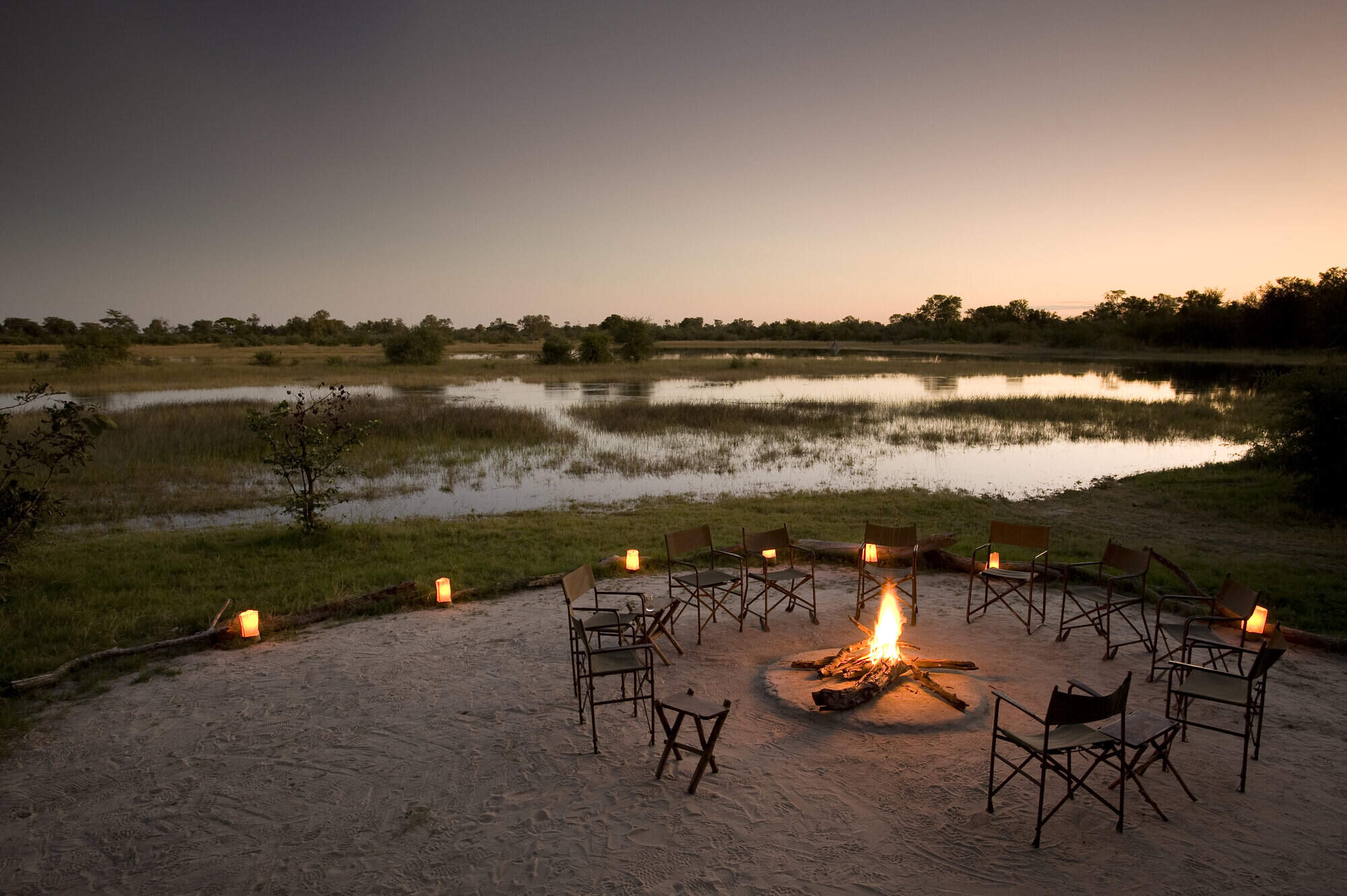
Okavango Explorers
The traditional, tented Okavango Explorers Camp offers a mix of walking, canoeing and game drives led by great guides in a wildlife-rich area.
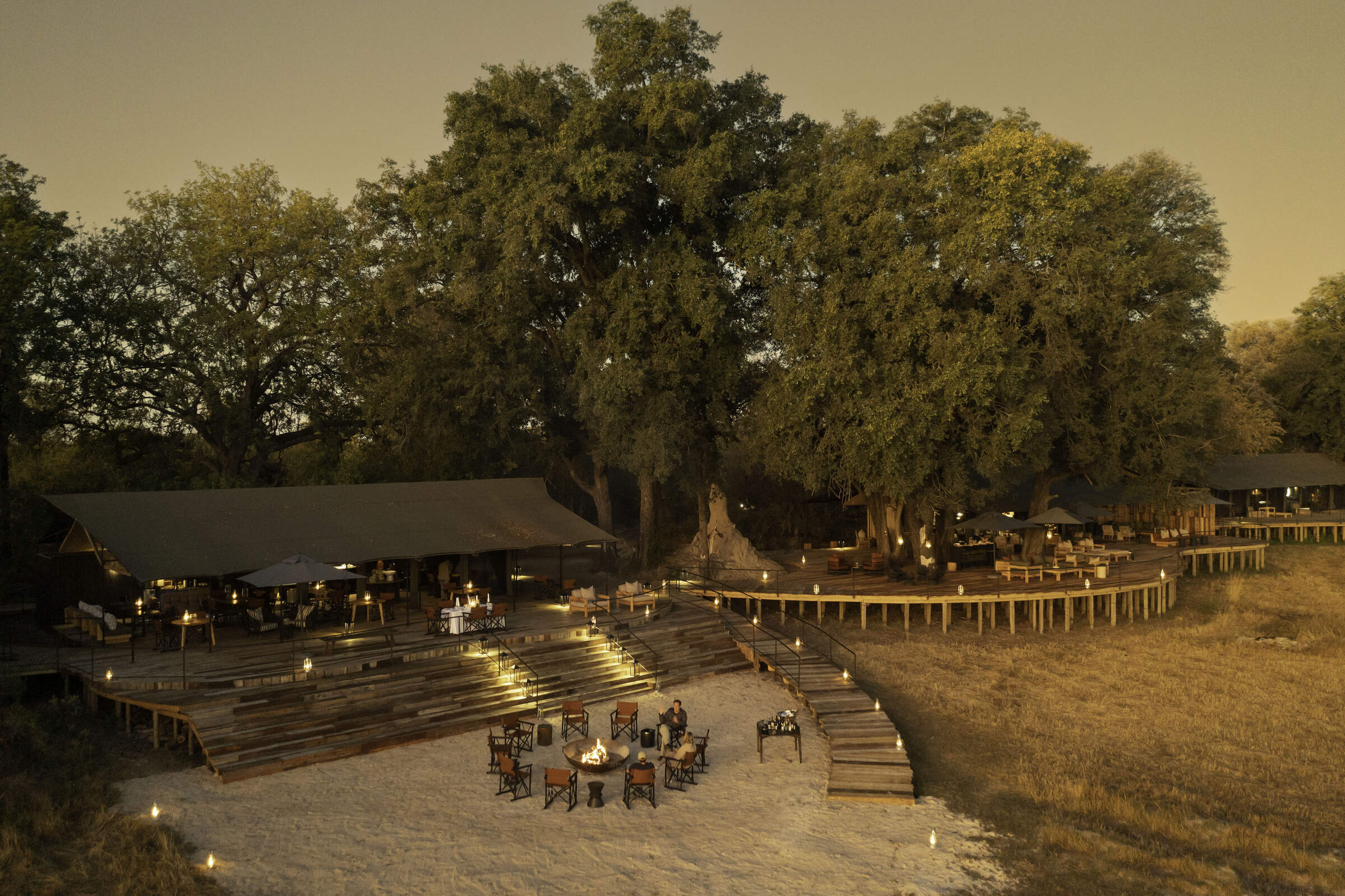
Kiri Camp
Kiri Camp is the latest Okavango offering from the excellent team behind Machaba. In an exciting new location in the heart of the Delta we cannot wait to visit this new camp.
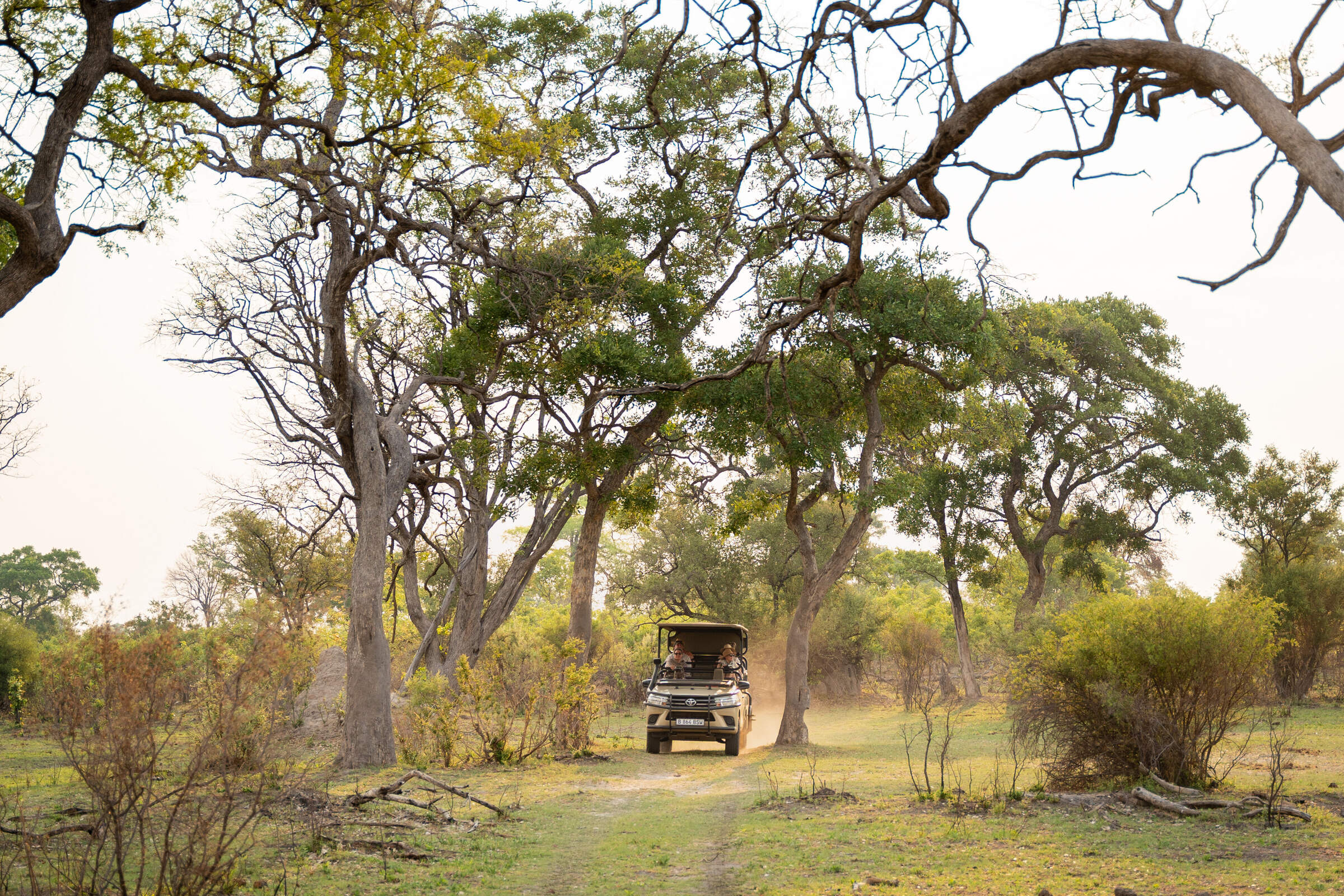
Karangoma
New for 2024, Karangoma is a classic, tented camp offering walking, canoeing and game drives, in partnership with the local Bukakwe San clan.
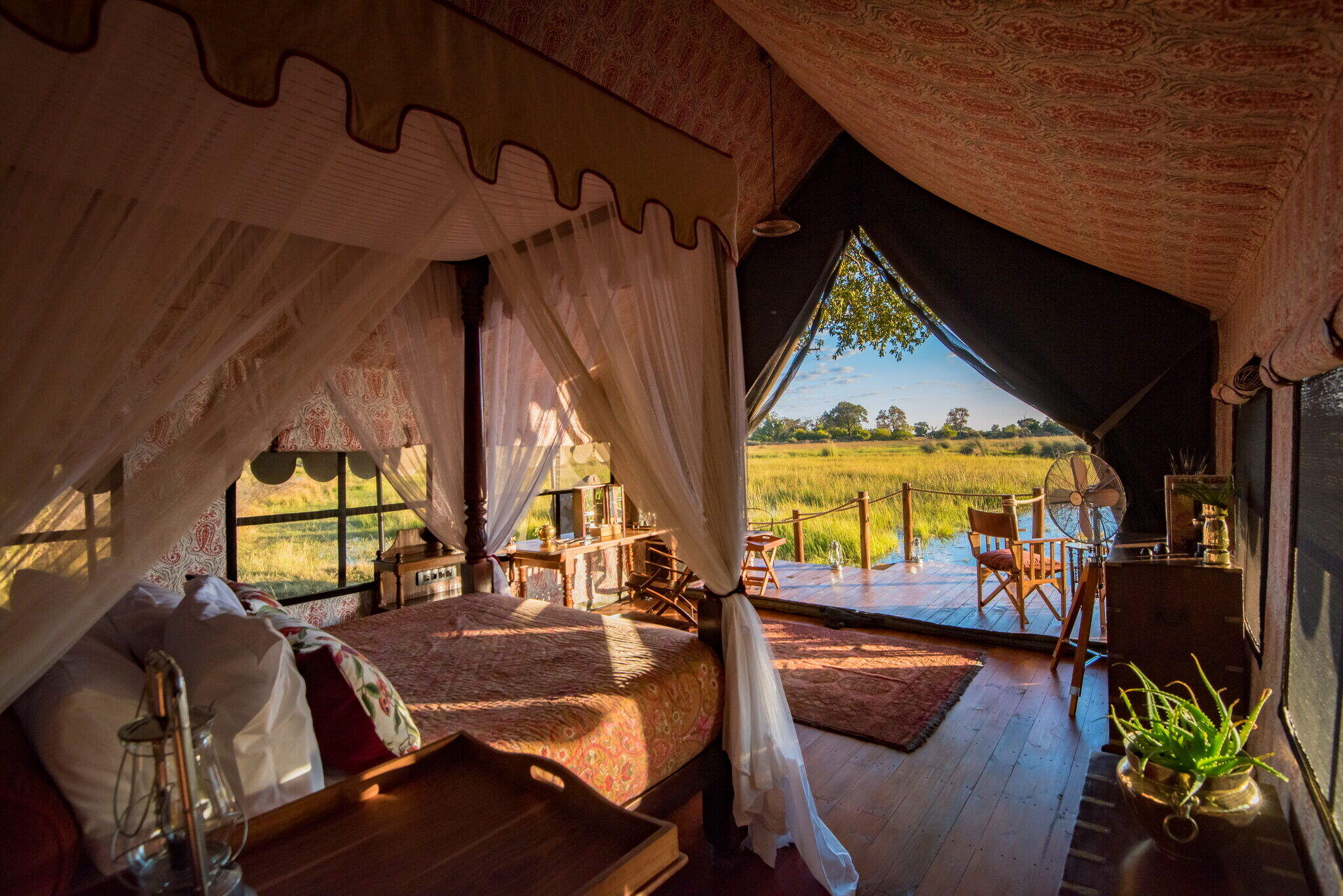
Duke’s Camp
On a remote island within a large concession, the romantic Duke's Camp and smaller Duke’s East are nestled among mature trees overlooking wildlife-rich plains and waterways of the Okavango.
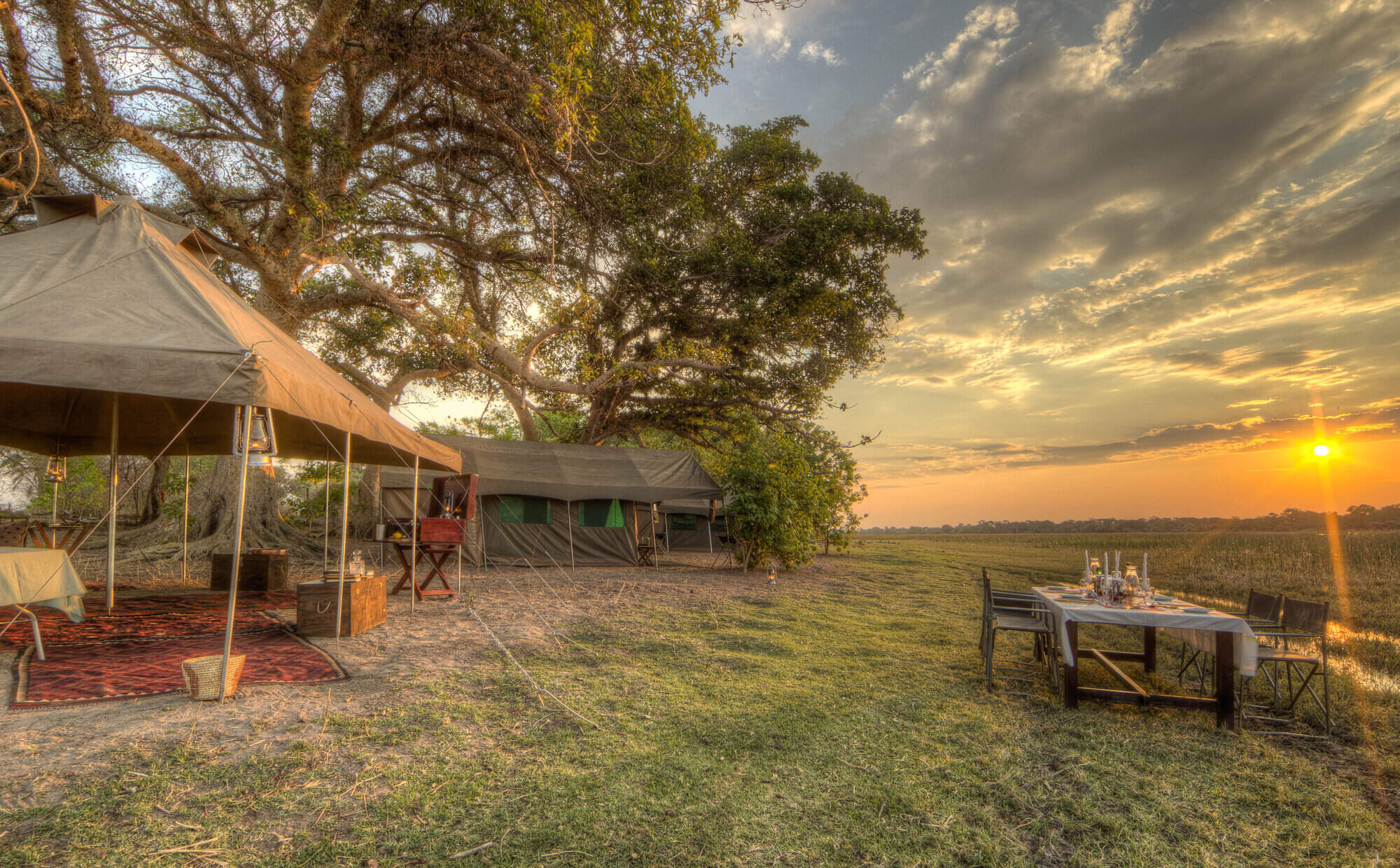
Okavango Walking Safari
The Okavango Delta Walking Safari camps in a secluded Okavango Delta Reserve where there are few roads; the ideal location for a walking trail led by an expert guide.
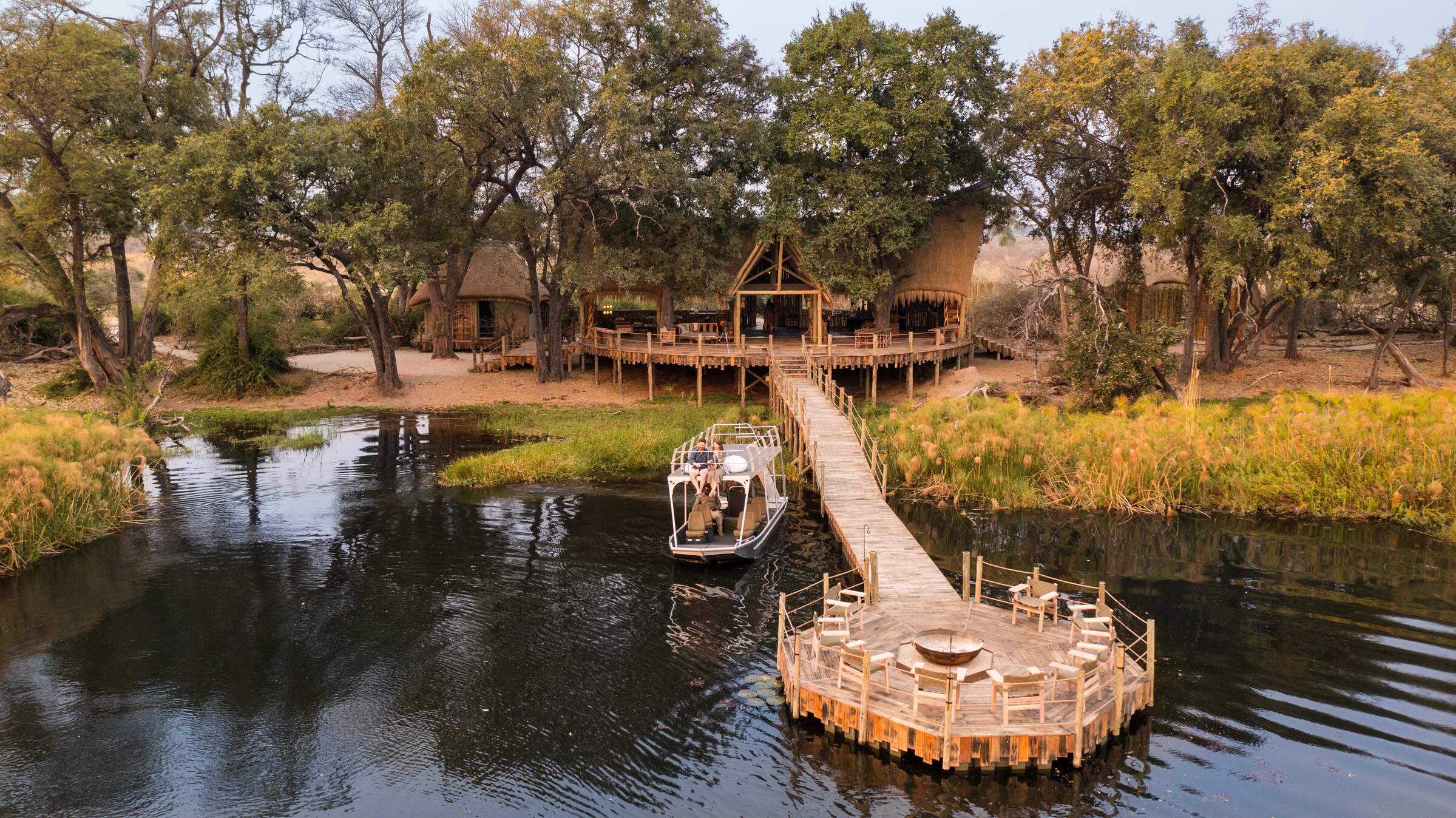
Sitatunga Island Camp
Tucked away in a pristine corner of the Okavango Delta, the exclusive Sitatunga Private Island is a water-based camp offering boating, mokoro trips and fishing.
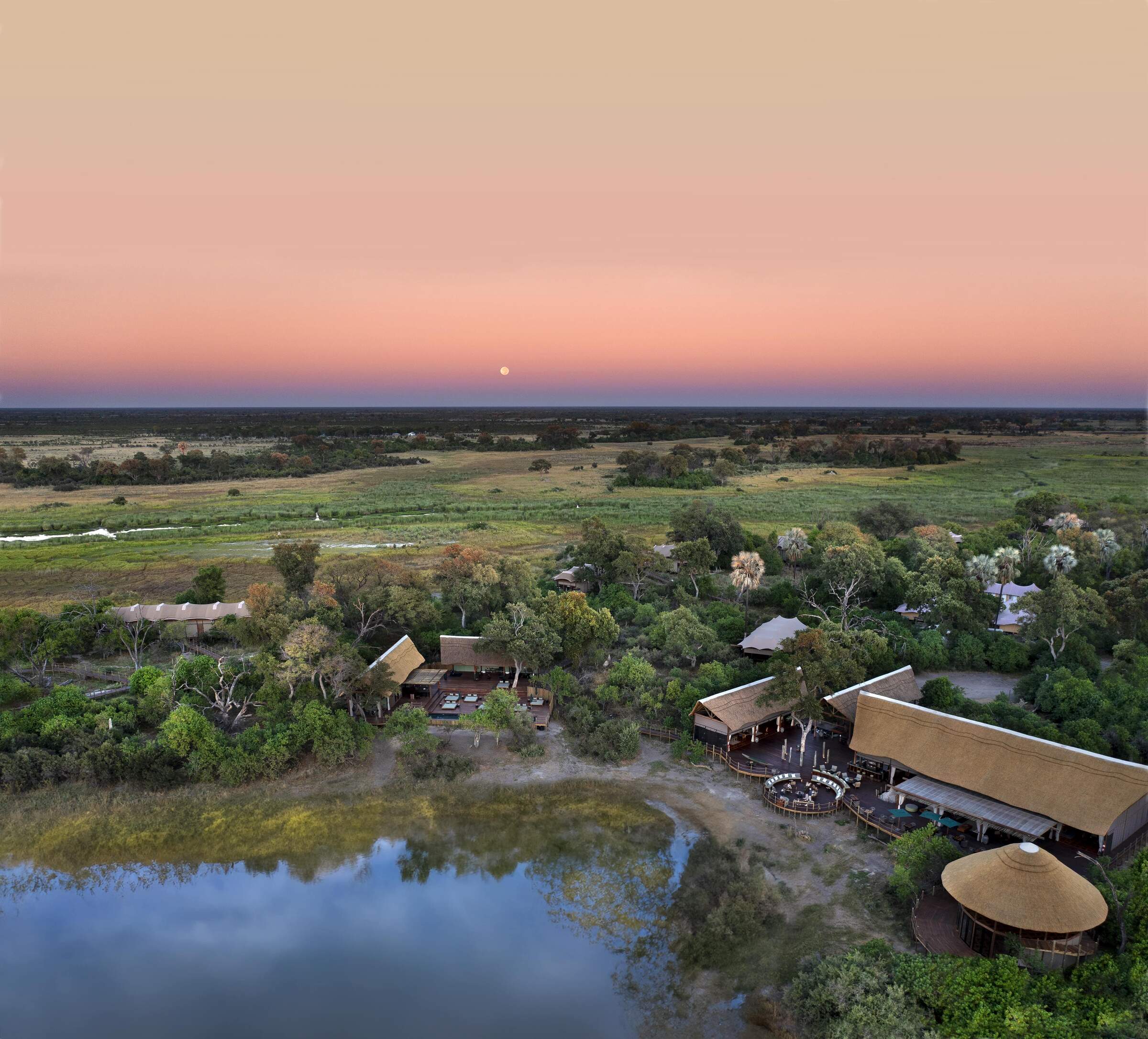
Atzaro Okavango
With a high level of tasteful luxury promised at Atzaro, we think it will be best suited to travellers seeking a touch of pampering alongside their safari.
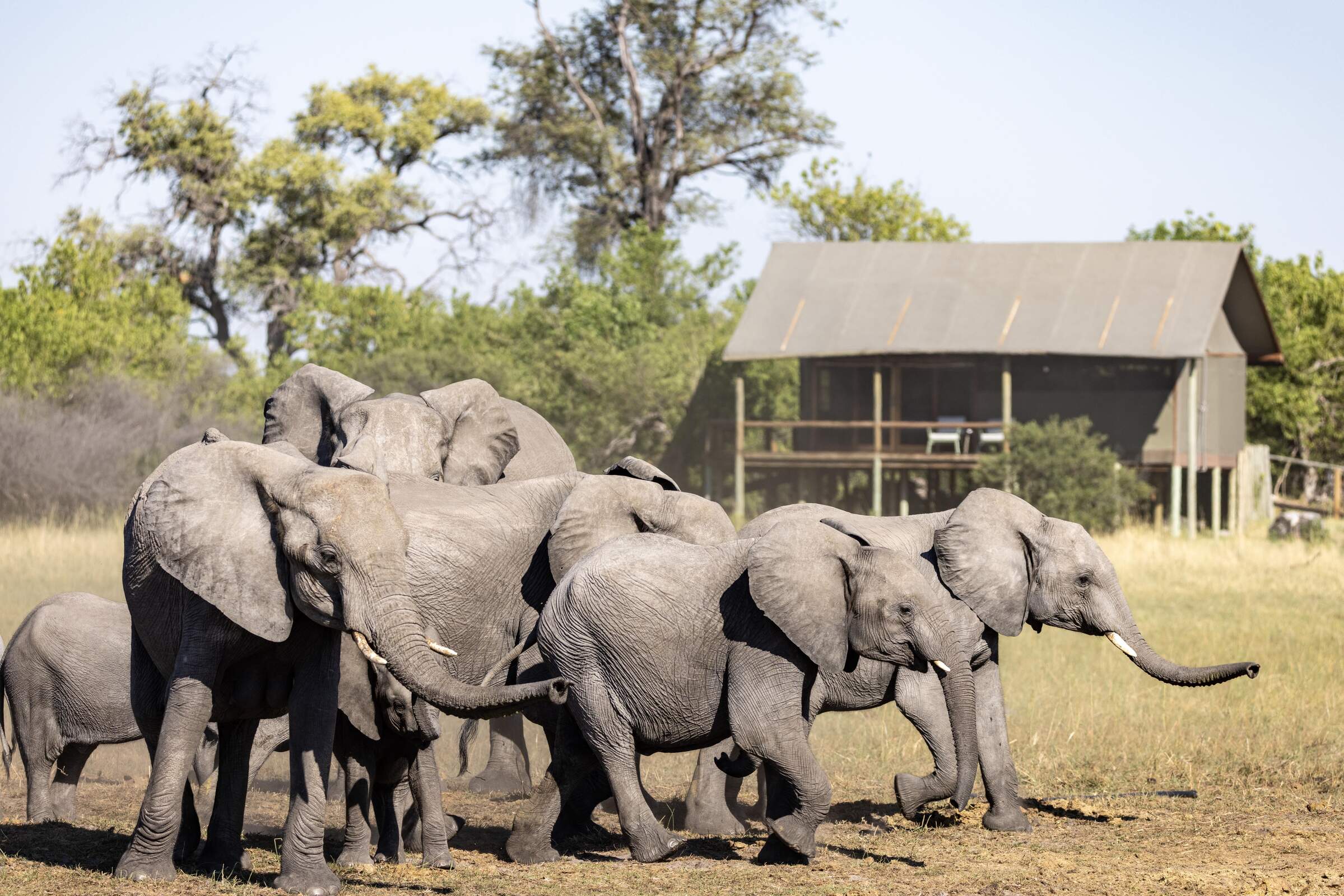
Mokolwane
Deep in the heart of the Okavango, the simple Mokolwane focuses on wildlife viewing in a large, untouched area.
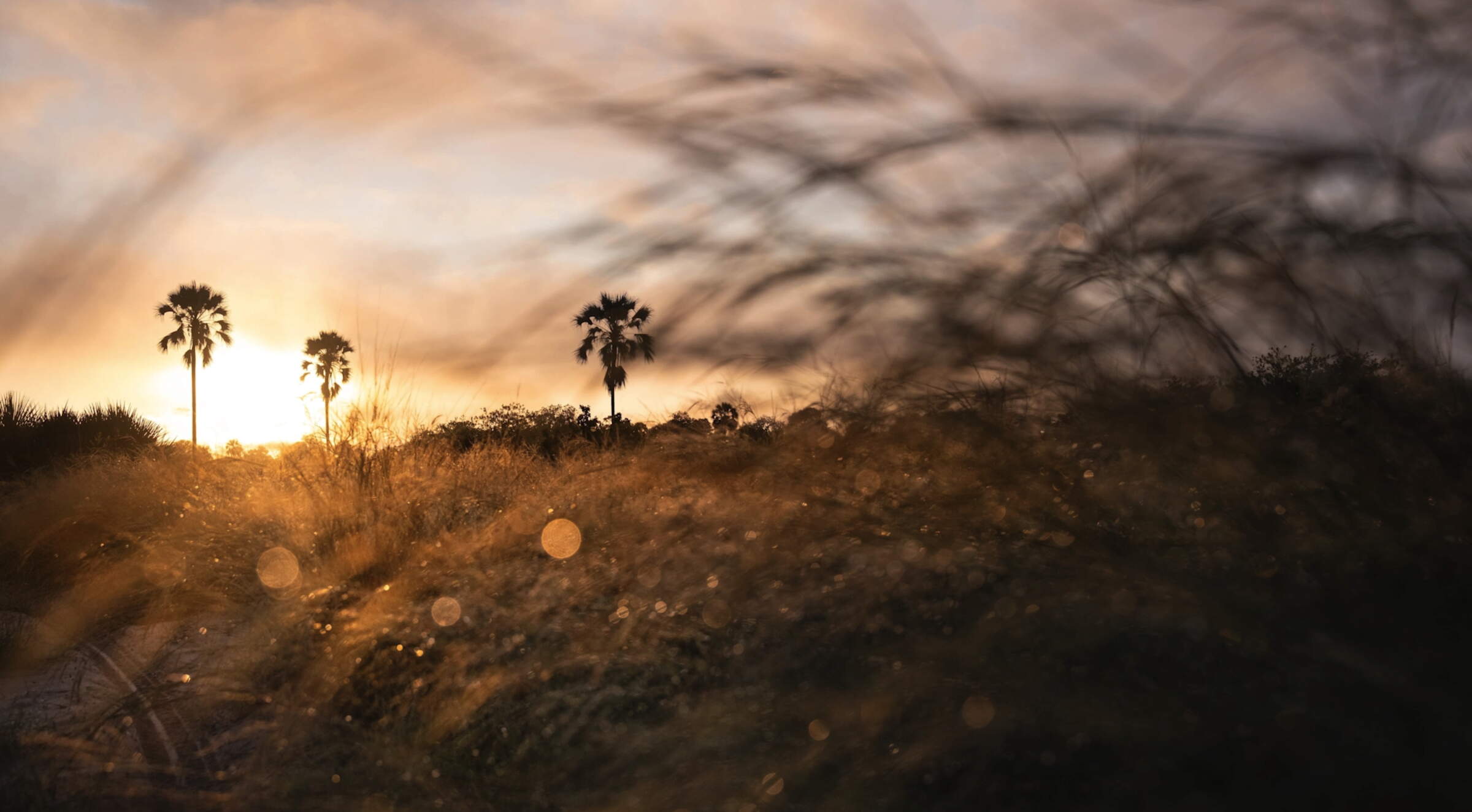
Singita Elela
Singita Elela is an exclusive safari camp on the western side of the Botswana's Okavango Delta - offering superb wildlife and water based opportunities depending on the seasonality.
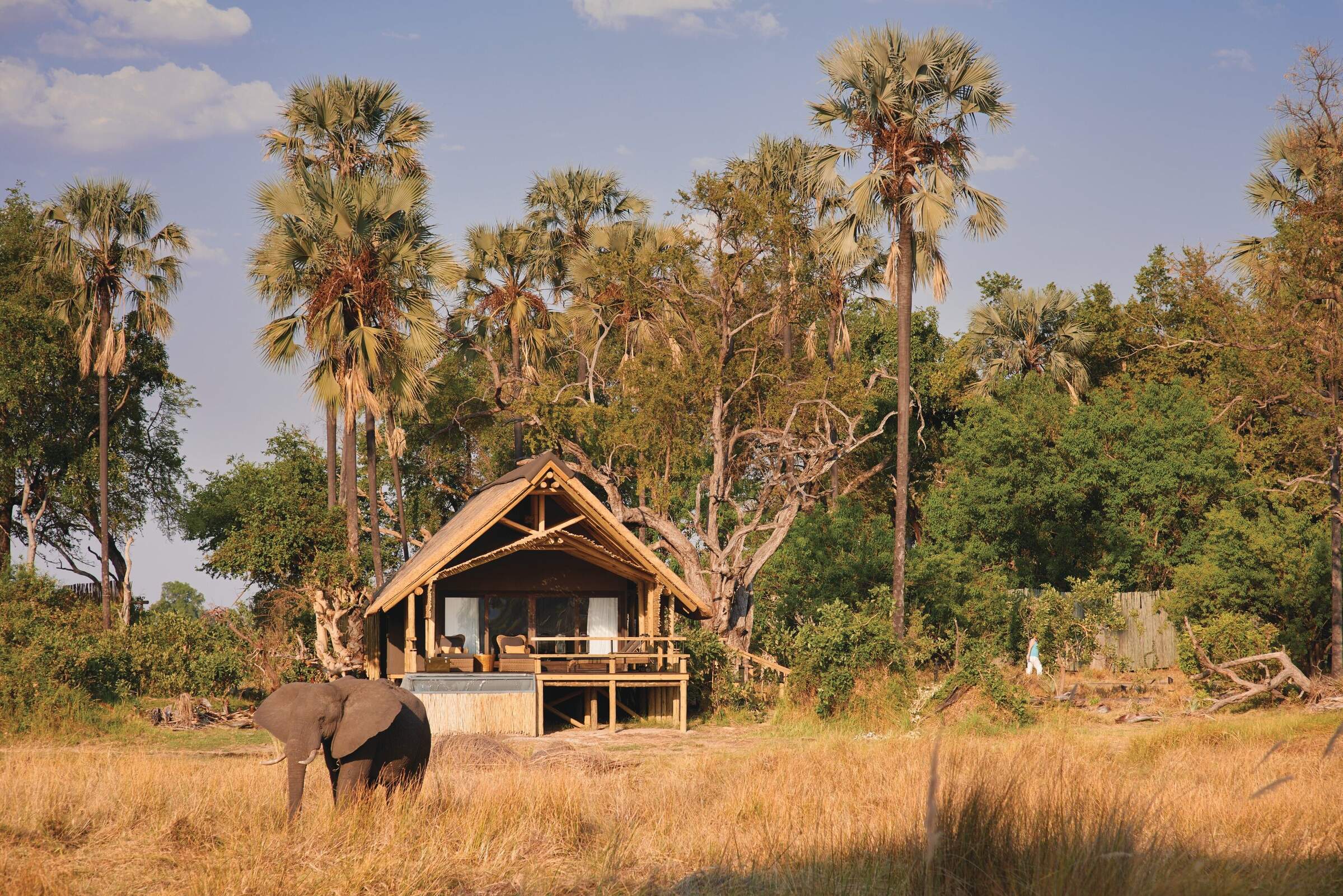
Eagle Island Lodge
Eagle Island Lodge is a luxurious camp with international-style facilities including air conditioning and intercom in each room; offering water based activities in the Okavango Delta.
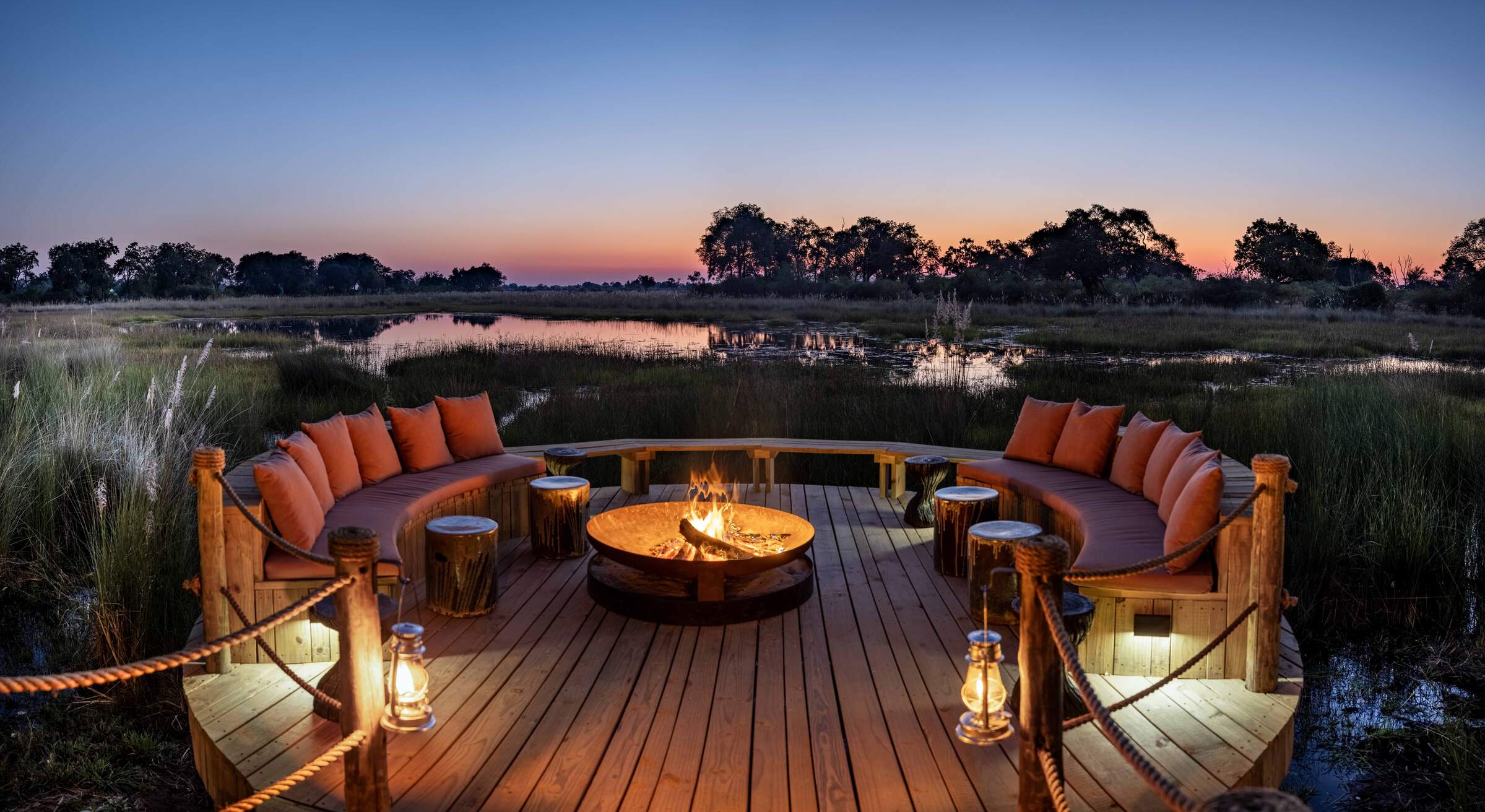
North Island Okavango
Deep in quintessentially “Okavango” territory, between deep-water and dry-land habitats, North Island focuses on a luxury safari experience with very good wildlife viewing opportunities.
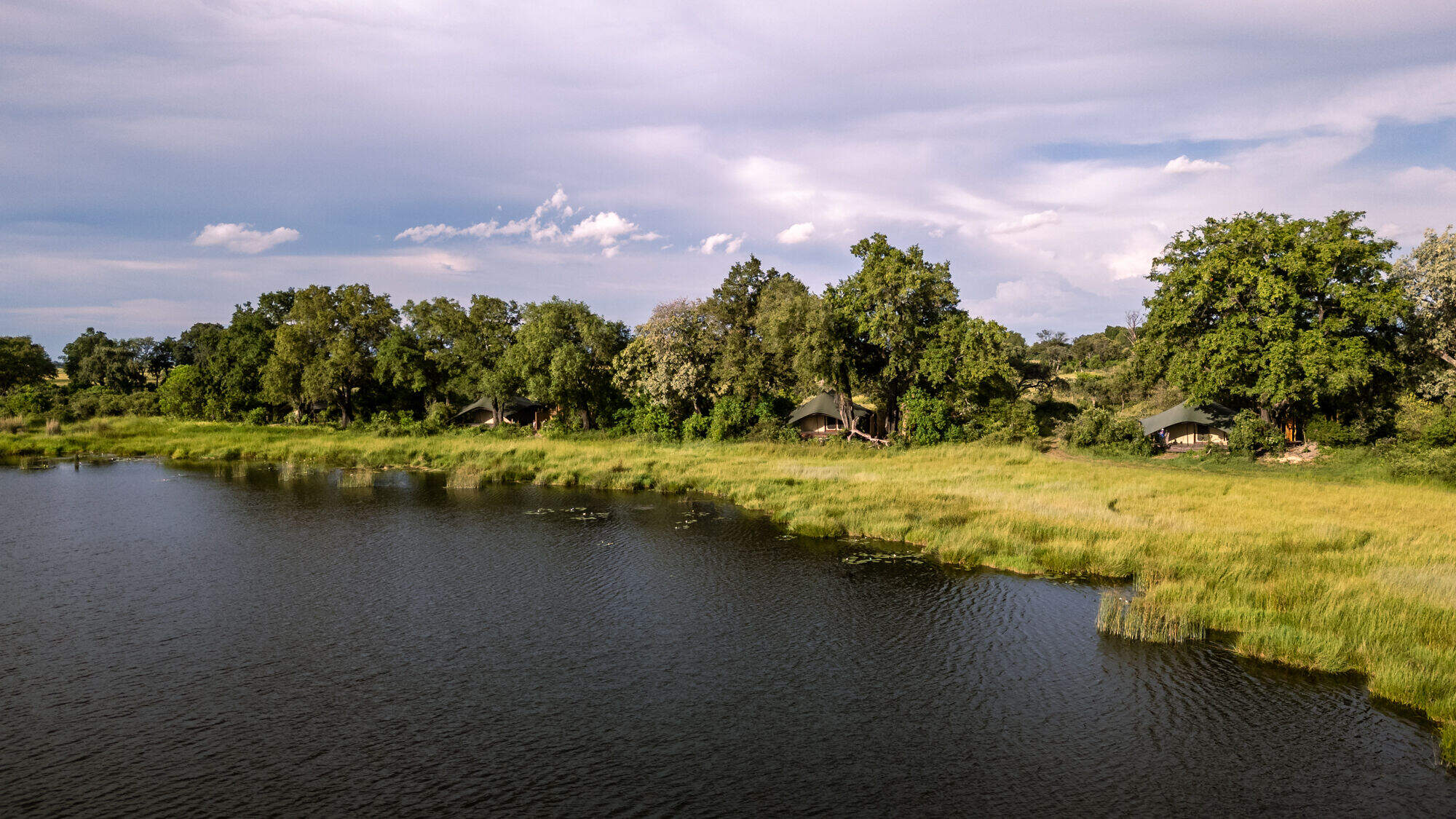
Maxa
Overlooking the permanent Maxa Lagoon, Maxa has a range of activities on offer, combining understated luxury with comfort in a remote location.
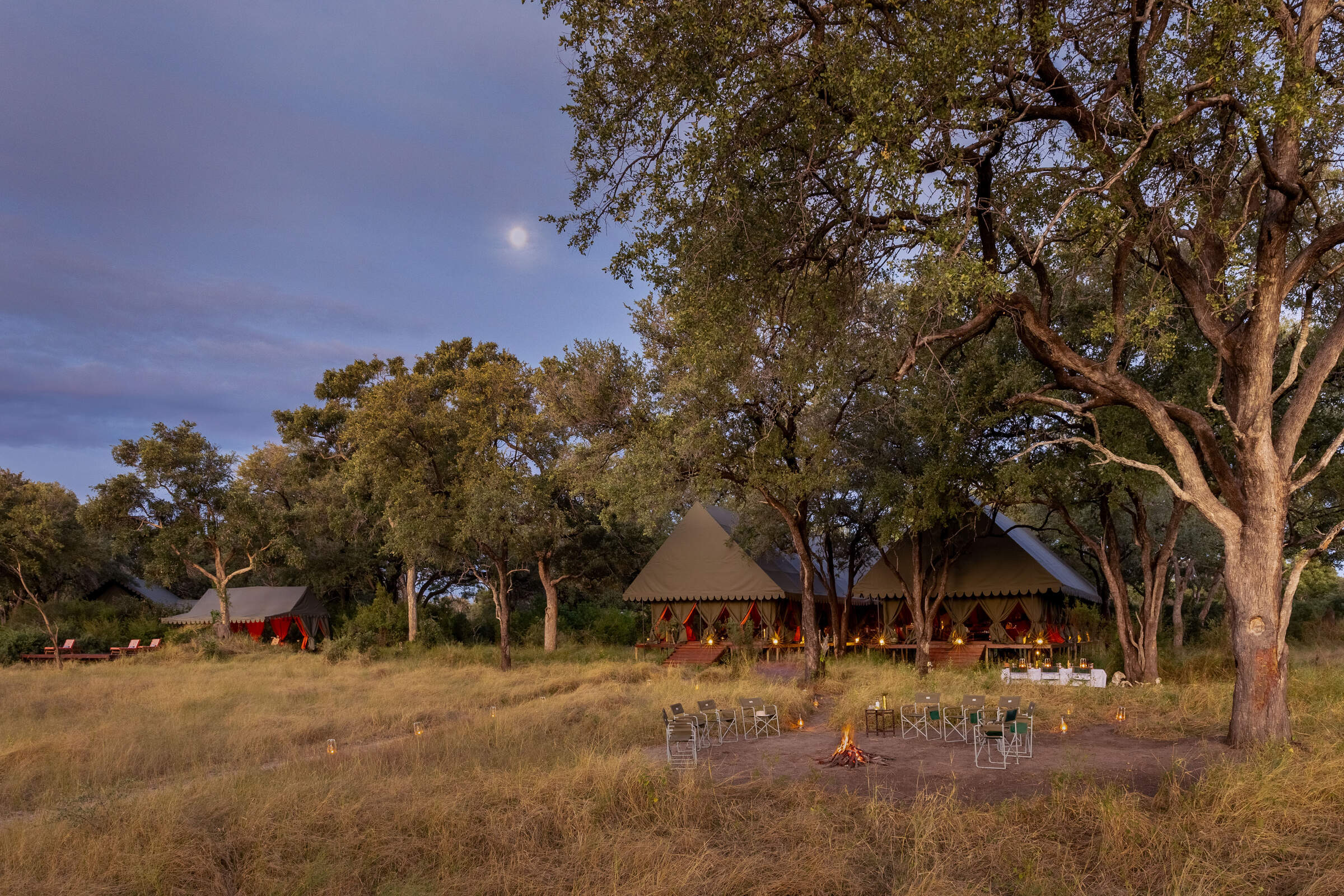
Mbamba
Deep within the northern Okavango, the classically styled Mbamba is located in the same wildlife-rich private concession as its sister camp Dukes.
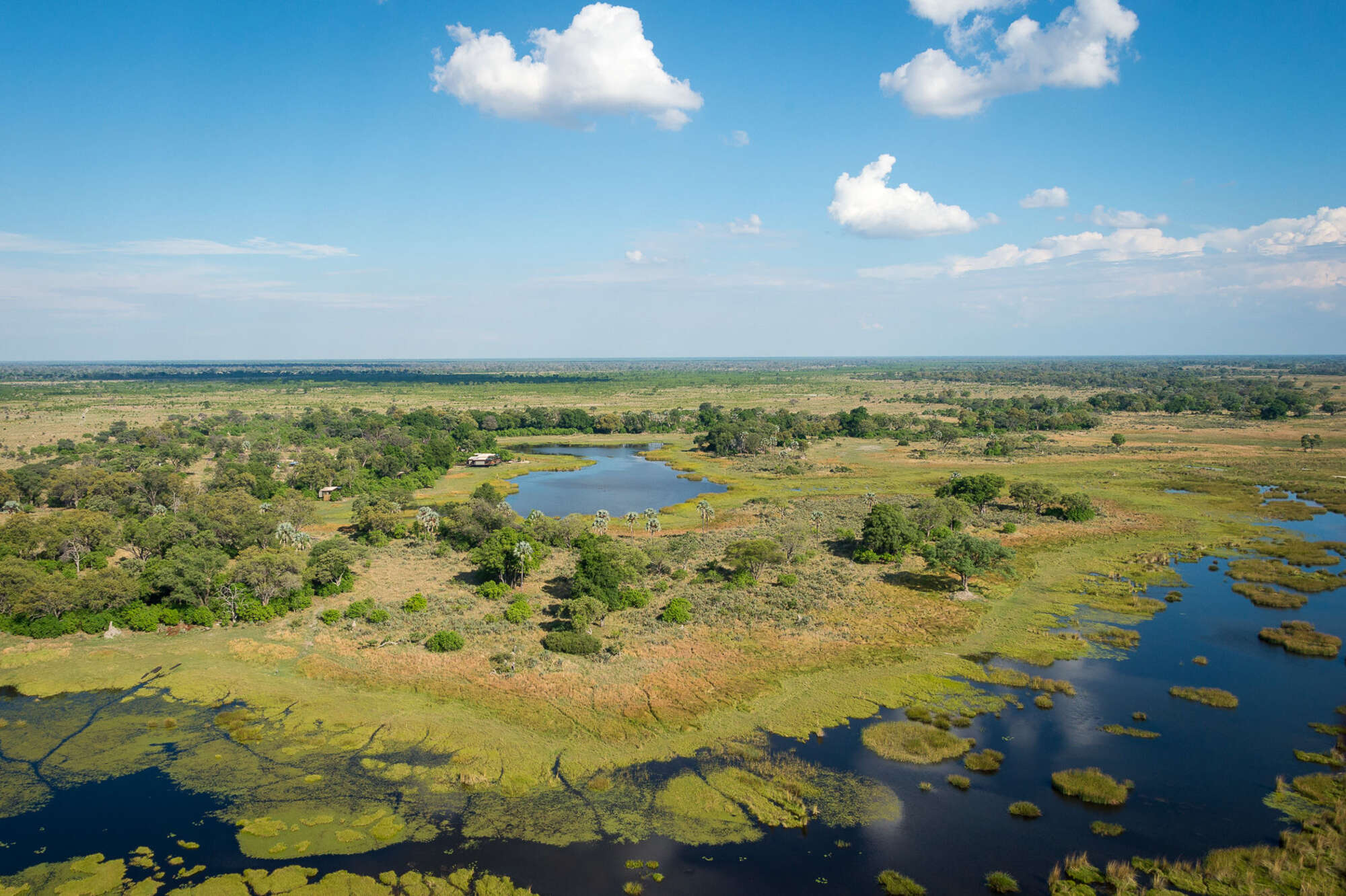
Qorokwe Camp
Luxurious and contemporary, the relatively new Qorokwe Camp is a gem in the Okavango Delta, offering land- and occasionally water-based activities in a prime wildlife area.
When to go to Okavango Delta Safari Reserves
Our month by month guide: What it's like to visit Jacana Camp in Okavango Delta Safari Reserves
Jan
Feb
Mar
Apr
May
Jun
Jul
Aug
Sep
Oct
Nov
Dec
Okavango Delta Safari Reserves in January
January marks the peak of the rainy season in the Okavango Delta. Evening rains are often short but heavy, accompanied by occasional dramatic thunderstorms. Temperatures remain high, although cooler than the preceding months of October to December. Wildlife can be harder to spot as animals spread out across the lush floodplains.
This month is a birdwatcher’s paradise, with migratory species in abundance over flooded areas. Rising water levels in parts of the Delta make mokoro safaris possible, offering serene and immersive experiences. The vibrant greenery and dramatic skies provide stunning opportunities for photography. With relatively low rates and fewer visitors, January is ideal for those seeking a quieter, budget-conscious Botswana safari.
- Warm temperatures with frequent evening showers
- Birdlife at its most spectacular in the Delta
- Wildlife dispersed, but insects and smaller creatures abound
- Excellent availability in Delta lodges and camps
Our view
A good time to visit, with pros & cons
Weather in January
Okavango Delta Safari Reserves in February
February mirrors January’s weather patterns, with heavy rains and slightly cooler temperatures. The Delta’s landscape is at its greenest and teeming with life. Smaller animals, insects, and vibrant birdlife dominate, as many species raise their young. The rains create temporary pools and waterholes, further dispersing larger game, while thick vegetation and tall grass adds to the challenge of spotting big wildlife.
However, Moremi Game Reserve and select areas of the Delta still offer excellent game viewing opportunities. Rising water levels enhance water activities, with boat safaris providing unique access to the Delta’s watery beauty. February is particularly rewarding for photographers seeking lush landscapes and dramatic skies and birdwatchers, with many migratory species present.
- Warm with occasional thunderstorms
- Many animals with young in the Delta
- Big game dispersed throughout wetlands
- Big game dispersed, but viewing improves in drier areas
- Lower visitor numbers and great lodge availability
Our view
This is not a great time to visit
Weather in February
Okavango Delta Safari Reserves in March
March marks the gradual end of the main rainy season in the Okavango Delta. Sunny days become more frequent, with occasional afternoon thunderstorms. The Delta remains lush and vibrant, with wildlife activity increasing as animals finish raising their young and begin congregating around permanent water sources.
Rising water levels make boat safaris a highlight, offering intimate access to the Delta’s waterways. Birdwatching is excellent, with both resident and migratory species thriving. With fewer visitors, March offers a quieter, more personal safari experience.
- Rains taper off but temperatures remain warm
- Occasional small thunderstorms in Delta
- Wildlife begins congregating around water sources
- Ideal conditions for boat safaris
- Few tourists and attractive rates at camps
Our view
A good time to visit, with pros & cons
Weather in March
Okavango Delta Safari Reserves in April
April brings clearer skies to the Okavango Delta, with the landscape remaining green and lush. Night temperatures begin to drop, especially in the southern Delta. The annual floods from Angola start to flow through the northern Delta, filling channels and lagoons, creating ideal conditions for water-based activities like boat safaris.
Wildlife viewing improves as vegetation thins and predator activity increases with cooler evenings. Moremi Game Reserve and the private concessions offer rewarding game drives, and walking safaris on the larger islands, such as Chief’s Island, become popular during this time. Birdwatching remains excellent, with many migratory species still present. April’s combination of pleasant weather, wildlife activity, and relatively low rates makes it a rewarding time to visit.
- Cooler evenings and occasional light showers
- Floodwaters begin to fill Delta channels
- Predator-prey interactions increase
- Ideal for walking safaris and boat trips
- Popular shoulder season, rates fairly low
Our view
A good time to visit, with pros & cons
Weather in April
Okavango Delta Safari Reserves in May
May is a popular time to visit the Okavango Delta, marking the last month of the shoulder season. The annual floods continue to spread through the Delta, transforming the landscape. Cooler mornings and evenings encourage predator activity, while thinning vegetation makes wildlife spotting easier, though some tall grasses may still obstruct views.
May offers excellent photographic opportunities with clear, crisp air. It's a favourite time for many visitors, combining good wildlife sightings with pleasant weather. Camp bookings throughout the Delta fill up quickly during this period.
This is a perfect month for scenic flights, offering breathtaking views of the advancing floodwaters. Mokoro trips through the Delta’s tranquil waterways provide a unique perspective on the environment. Camps start to fill quickly as the Delta’s combination of pleasant weather and excellent wildlife sightings makes it a favourite among safari-goers.
- Cool mornings and evenings with little rain
- Improved game viewing as Delta grasses thin
- Predator activity increasing in drier areas
- Scenic flights and water activities highly recommended
- Last month of shoulder season for camps
Our view
A very good time to visit
Weather in May
Okavango Delta Safari Reserves in June
June signals the start of the dry season in the Okavango Delta. Days are warm, with clear skies, while mornings and evenings can be cold, occasionally reaching freezing temperatures. The annual floods reach their peak, creating spectacular conditions for water-based activities like boat safaris along the Khwai River and in private concessions.
Wildlife concentrates around permanent water sources as surface water dries up, improving game viewing. The thinning vegetation and crisp, clear air make June perfect for photography. High demand for camp bookings reflects its popularity, as this month combines great game viewing and pleasant weather.
- Warm days, cold mornings and nights
- Peak floodwaters make boat safaris unforgettable
- Wildlife congregates around permanent water sources
- Excellent conditions for photography
- High demand for camps and lodges
Our view
Fantastic: the very best time to visit
Weather in June
Okavango Delta Safari Reserves in July
July offers cool mornings and evenings with warm, sunny days, making it ideal for wildlife viewing. The floodwaters remain at their peak, providing excellent opportunities for boat safaris. Vegetation continues to thin, enhancing visibility on game drives in Moremi Game Reserve and the Okavango’s private reserves.
Large herds of elephants and buffalo are common sights as they gather near water sources. Predator sightings, including lions and leopards, increase as prey concentrates. Birdwatching is rewarding, and the crisp winter air creates stunning photographic conditions. July is one of the most popular months to visit, with many lodges fully booked well in advance.
- Comfortable days, cold mornings and nights
- Excellent game viewing and predator activity
- Moremi and Khwai areas become busy
- Private concessions offer exclusivity
- High season rates; advance bookings essential
Our view
Fantastic: the very best time to visit
Weather in July
Okavango Delta Safari Reserves in August
August remains a highly sought-after month for visiting the Okavango Delta. Nights are cool, while daytime temperatures rise gradually. Wildlife viewing is exceptional as animals concentrate near water sources, while the Delta’s floods are typically at their peak, offering picturesque settings for excellent boat safaris.
Walking safaris and game drives in areas like Moremi Game Reserve and Chief’s Island are particularly rewarding. Large herds of elephants and buffalo are common sights, and predator activity is high, with increased chances of seeing lions, leopards, and wild dogs hunting. The clear skies and lack of humidity create excellent stargazing conditions. With many travellers visiting during European and North American holidays, lodge availability can be challenging.
- Dry, warm days and cool nights in the Delta
- Fantastic wildlife viewing near water sources
- Excellent opportunities for game drives and boat safaris
- Cloudless skies, spectacular stargazing
- High demand for accommodation – book early
Our view
Fantastic: the very best time to visit
Weather in August
Okavango Delta Safari Reserves in September
September is a favourite for many safari-goers in the Okavango Delta. Daytime temperatures rise, but nights remain cool. The landscape transforms as greenery fades, and hazy conditions create dramatic sunsets. Wildlife viewing peaks as animals cluster around permanent water sources, with especially large numbers of elephants and buffalo. This concentration of prey attracts predators, increasing chances of witnessing exciting hunts.
The return of migratory birds enhances birdwatching. Water levels begin to recede, but boat cruises are still possible. Dusty conditions may challenge photographers, but the stunning landscapes and wildlife action more than make up for it.
- Warm days, cool nights in the Delta
- Prime month for Okavango wildlife viewing
- Migratory birds return, enriching birdwatching
- Spectacular sunsets and dramatic scenery
- High season rates, many Delta camps full
Our view
Fantastic: the very best time to visit
Weather in September
Okavango Delta Safari Reserves in October
October is the hottest and driest month in the Okavango Delta. Wildlife concentrates around the last remaining water sources, creating some of the most dramatic game viewing opportunities of the year. Predator-prey interactions are frequent and visibility is excellent, making for thrilling safaris.
Walking safaris are particularly rewarding, especially on smaller islands, but early starts are essential to avoid the midday heat. Towards the end of the month, the first rains may bring relief and begin rejuvenating the parched landscape. Despite the heat, October offers excellent big-game viewing and dramatic photographic moments of animal interactions.
- Hot days, with late-month chances of rain
- Outstanding big-game viewing near water sources
- Water activities limited as floods recede
- Walking safaris provide unique experiences
- Final month of the peak safari season
Our view
Fantastic: the very best time to visit
Weather in October
Okavango Delta Safari Reserves in November
November marks the start of the green season in the Delta. Rising humidity and temperatures often lead to the first heavy rains; these are typically short, heavy showers in the late afternoon or night, creating spectacular scenes and bringing a flush of green to the parched landscape. Wildlife begins to disperse as waterholes refill, but game drives still offer rewarding sightings.
Water levels may be low, limiting boat activities, but November is exceptional for birdwatching, with the arrival of many migratory species. Scenic flights highlight the contrast between dry and wet areas. The first two weeks are popular for travellers seeking good game viewing at lower rates as the Delta transitions into its shoulder season.
- Hot, humid days in the Delta
- Dramatic rain showers , increasing as month progresses
- Migratory birds arrive in abundance
- Wildlife watching good, but less predictable
- Shoulder season offers mid-range rates
Our view
A good time to visit, with pros & cons
Weather in November
Okavango Delta Safari Reserves in December
December sees the rainy season in full swing across the Okavango Delta, bringing some respite from high temperatures. Game viewing becomes more challenging as wildlife disperses, but great sightings can still be had. The landscape transforms dramatically, with lush vegetation sprouting across the Delta. This period is excellent for birdwatching, with numerous migratory species present.
Water levels begin to rise, gradually improving conditions for boat safaris. The green season offers unique photographic opportunities, with dramatic skies and newborn animals. December is ideal for visitors seeking a more intimate Delta experience, with fewer tourists and lower rates at many camps and lodges. The combination of wildlife, birdlife, and scenic beauty makes it a rewarding time to visit.
- Warm temperatures
- High chance of rain in short, heavy storms
- Wildlife more dispersed across Delta
- Game viewing more challenging in wetlands
- Low-season rates and fewer visitors in most Delta camps
Our view
A good time to visit, with pros & cons
Weather in December

Looking for inspiration on where to travel next?
Visit our trip chooser to explore your options and find inspiration for your perfect African adventure
Inspire me